TCL C655 PRO is an upgrade of the basic model from this series, and although the name may suggest only minor differences, the addition of "PRO" truly signifies much more. The biggest change, compared to its less advanced sibling, is the picture quality. The manufacturer has opted for the implementation of local dimming technology, which significantly improves black levels and contrast. The television is able to offer us a more refined image. As a result, TCL C655 PRO clearly outshines the more basic version in this regard. The applied QLED panel further enhances the coverage of a wide colour range, offering vibrant and saturated colours, which excel in both films and dynamic content, such as games. In the context of gaming, just like the basic version, TCL C655 PRO offers a host of useful features for gamers – including ALLM, VRR, and Game Bar – which greatly enhance the gaming experience. The television can also adjust the screen refresh rate to a lower resolution, meaning that despite supporting 4K at 60 Hz, in Full HD or 2K, one can enjoy smoother images at 120 Hz. In daily use, the Google TV operating system works excellently. The intuitive interface, personalised recommendations, and broad access to streaming applications, such as Netflix, YouTube, or Disney+, make the television enjoyable to use. This makes it easy to overlook the lack of recording functionality and picture-in-picture (PiP), which is not a major issue given the rich offering of applications. If we are willing to make that slight price difference, we definitely recommend TCL C655 in the PRO version.
- Matching (Score)
- Our verdict
- TV appearance
- Where to buy
- Contrast and black detail
- HDR effect quality
- Factory color reproduction
- Color reproduction after calibration
- Smoothness of tonal transitions
- Image scaling and smoothness of tonal transitions
- Blur and motion smoothness
- Console compatibility and gaming features
- Input lag
- Compatibility with PC
- Viewing angles
- TV efficiency during daytime
- Details about the matrix
- TV features
- Apps
- Playing files from USB
- Sound
TCL C655 Pro vs Samsung U8000F (IPS)
Direct compare
U8000F / U8092F
Available screen sizes: 55”

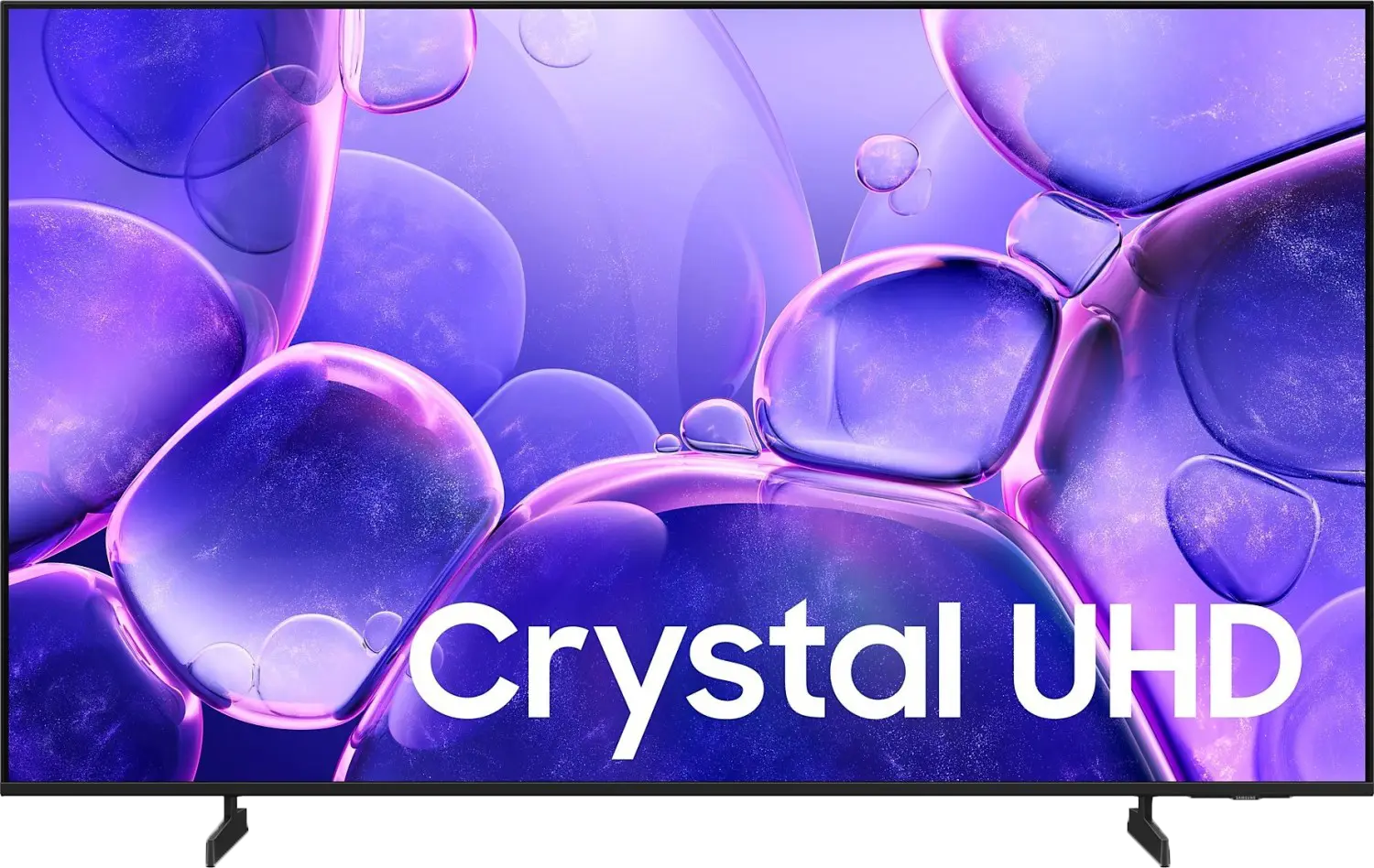
Panel type: LCD VA
Resolution: 3840x2160
System: Google TV
Model year: 2024
Complete the survey to find out the result

Panel type: LCD IPS
Resolution: 3840x2160
System: Tizen
Model year: 2025
Complete the survey to find out the result

Overall rating
6.5
5.3
Movies and series in UHD quality
5.9
4.8
Classic TV, YouTube
6.0
4.8
Sports broadcasts (TV and apps)
5.3
5.8
Gaming on console
7.8
6.3
TV as a computer monitor
6.0
6.0
Watching in bright light
5.8
3.4
Utility functions
7.7
5.6
Apps
10.0
8.3
Sound quality
6.6
5.7
Complete the survey to find out what fits your preferences
Advantages
High brightness
Deep blacks and contrast - Local Dimming technology
Google TV support with access to a variety of streaming apps
Features for gamers, such as ALLM, VRR, and Game Bar
Adaptive refresh rate 4K@60hz, 2K@120Hz, 1080p@120Hz
Very low input lag, even in Dolby Vision mode (13 ms)
Extensive Smart system: Tizen
Good viewing angles (IPS Matrix)
Great for working with text - displays fonts excellently
Low input lag
Basic features for gamers - VRR and ALLM
Disadvantages
No content recording feature on USB and no picture-in-picture (PiP) option
Poor viewing angles due to the VA panel – the picture loses quality when viewed from the side
Low brightness
Very poor black and contrast (IPS Matrix)
Inferior appearance to its predecessor
Infrared remote control
Our verdict
The U8000F is a very basic television that may find its buyers among those looking for the cheapest Samsung 4K with Smart TV. And that is precisely its task. Thanks to the Tizen system, this model offers quite a lot in terms of smart features – the number of apps and possibilities may catch the attention of those who want a reasonably intelligent device at the lowest possible price. As for picture quality – it is average, which is not surprising in this class. Nevertheless, there are a few positives: fairly good viewing angles work well for traditional TV watching from different parts of the room, and the basic features for gamers (such as VRR and ALLM) may suffice for typical "Sunday" gamers. The PC mode also deserves a mention – the television handles font display very well, so it can also serve as a budget monitor. Of course, this is not a model that can be recommended to everyone "sight unseen." But if someone is looking for a cheap Samsung with 4K resolution and a solid Smart system, that is exactly what the U8000F offers.
TV appearance




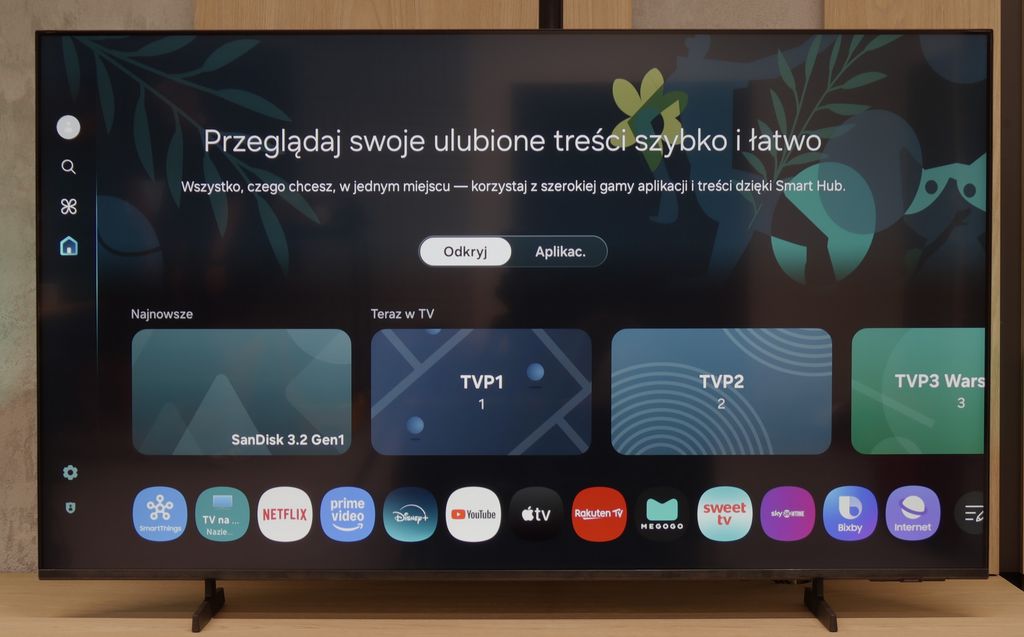
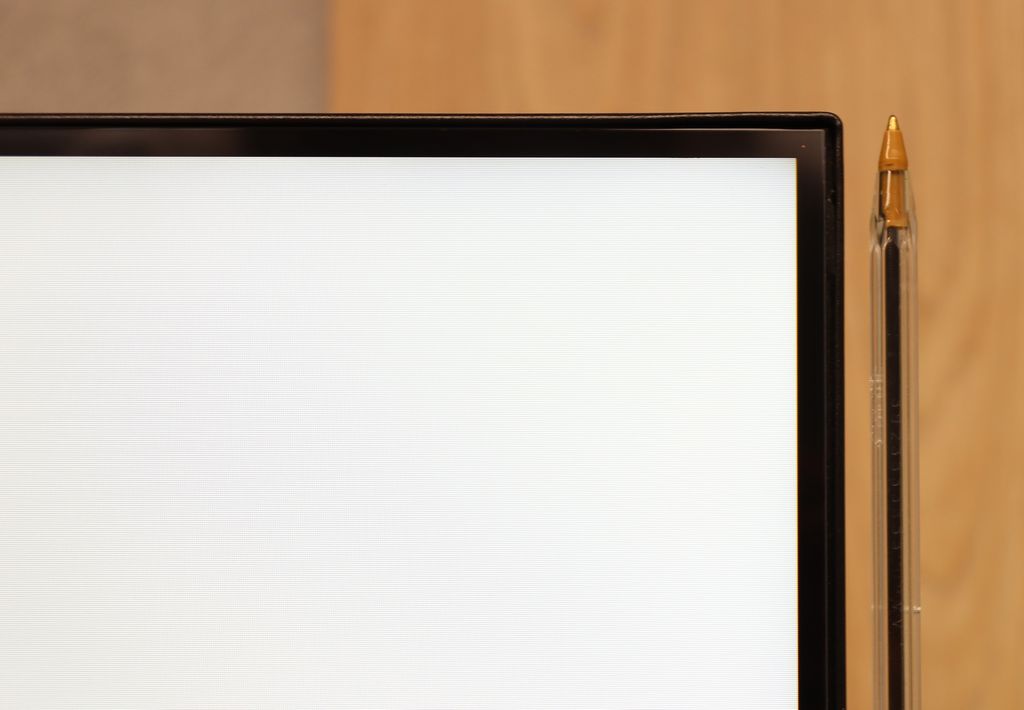
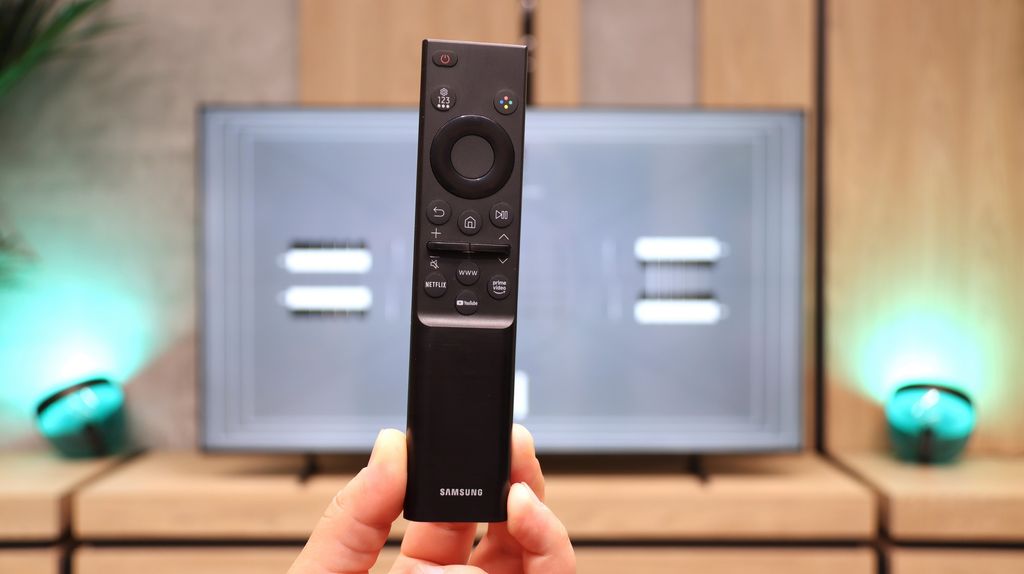
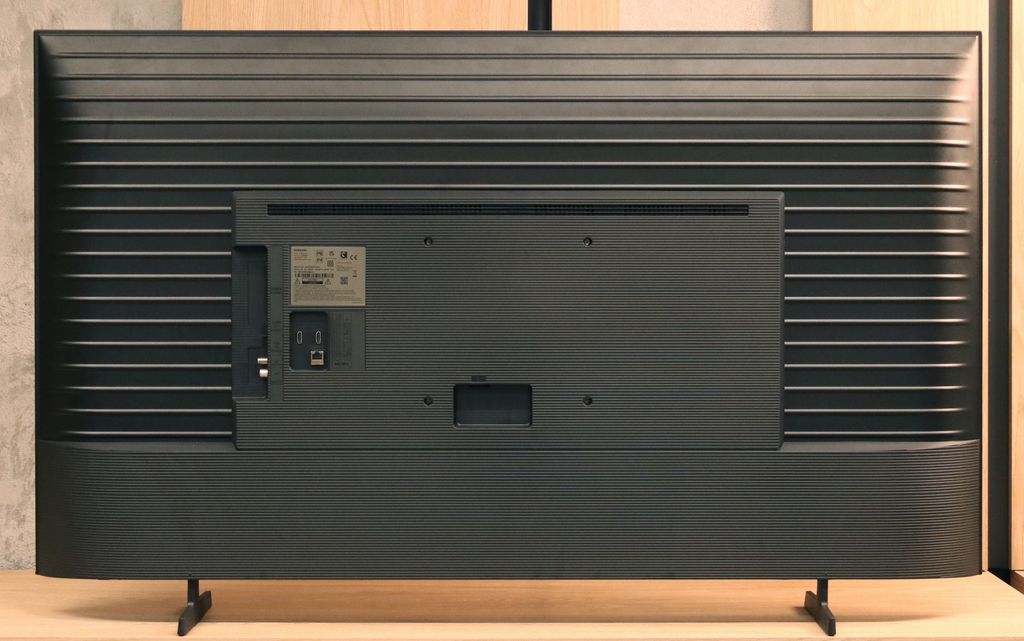
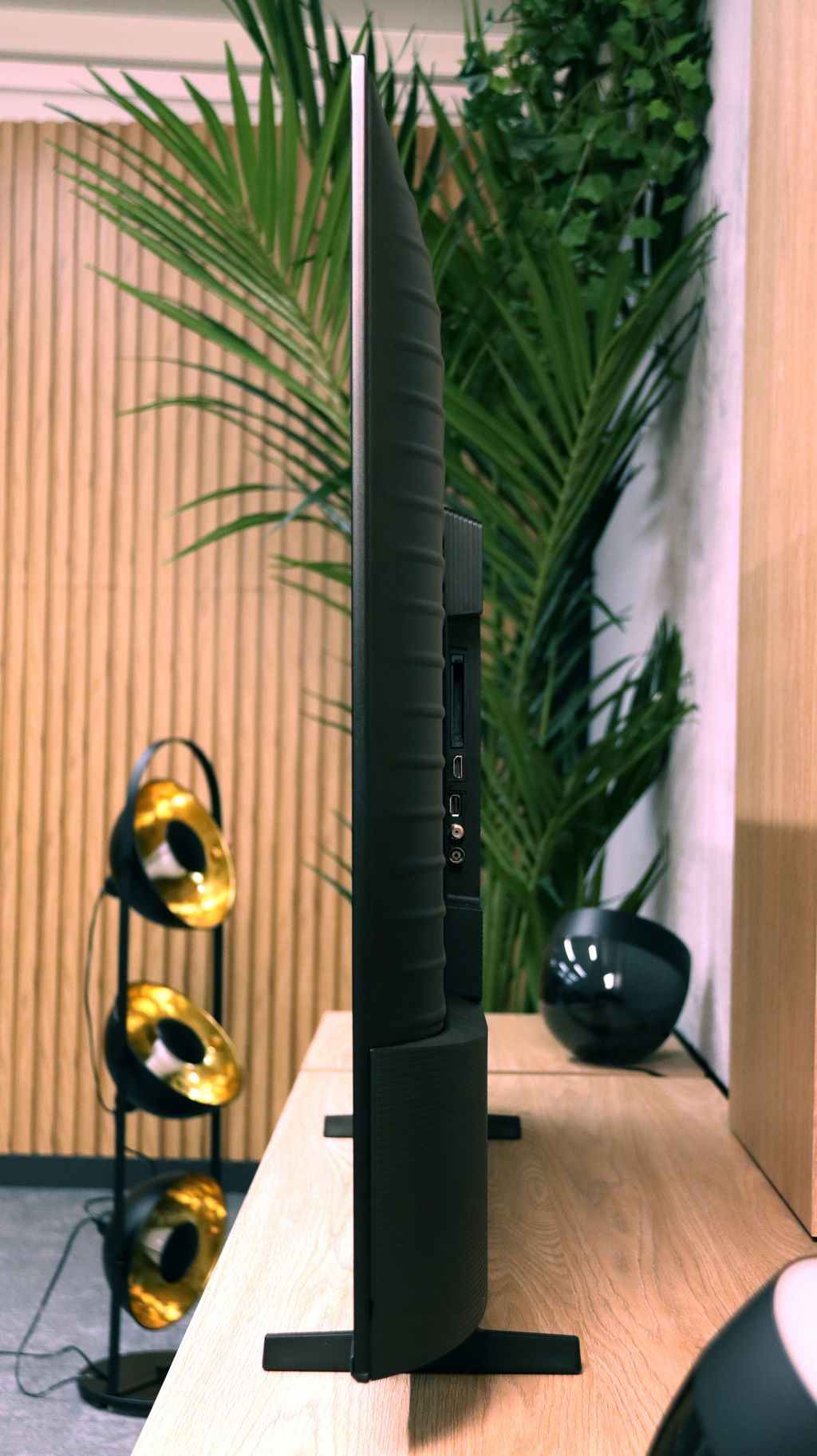
Contrast and black detail
7.1/10
1.1/10
Local dimming function: Yes, number of zones: 84 (12 x 7)
Local dimming function: No
Contrast:
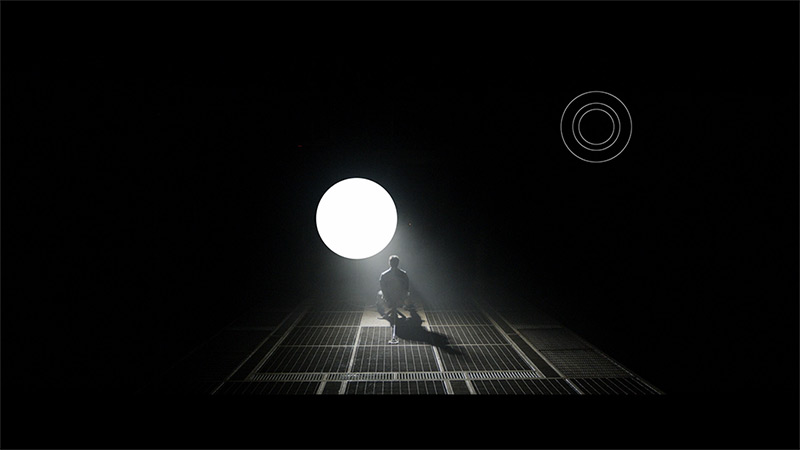
Result
56,000:1
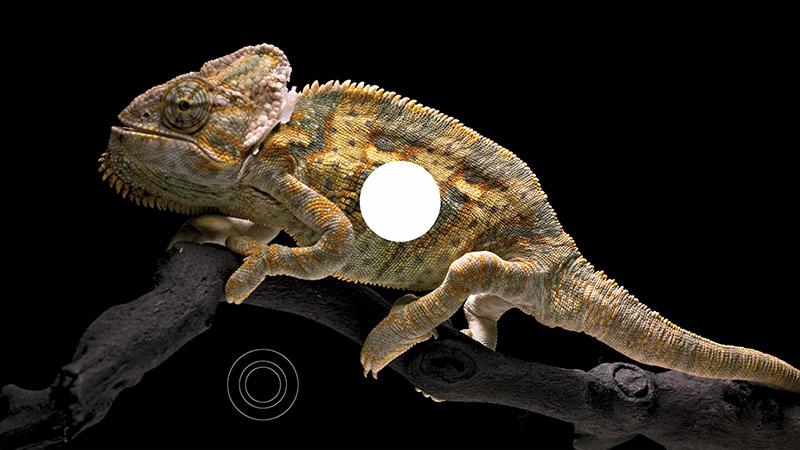
Result
15,850:1
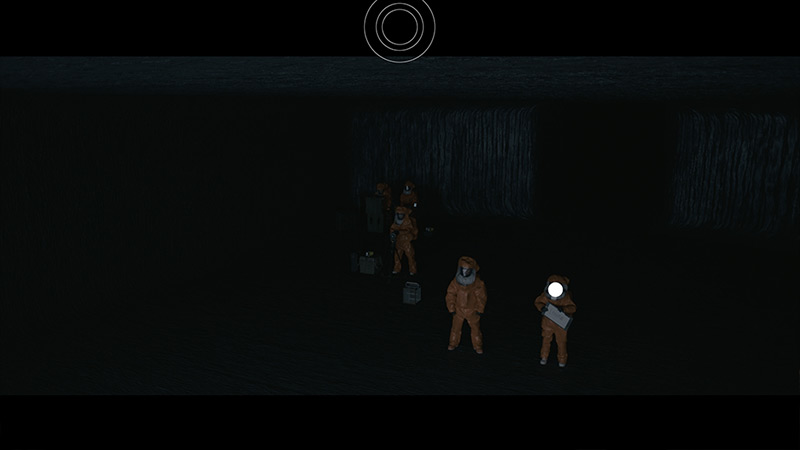
Result
11,350:1

Result
7,100:1
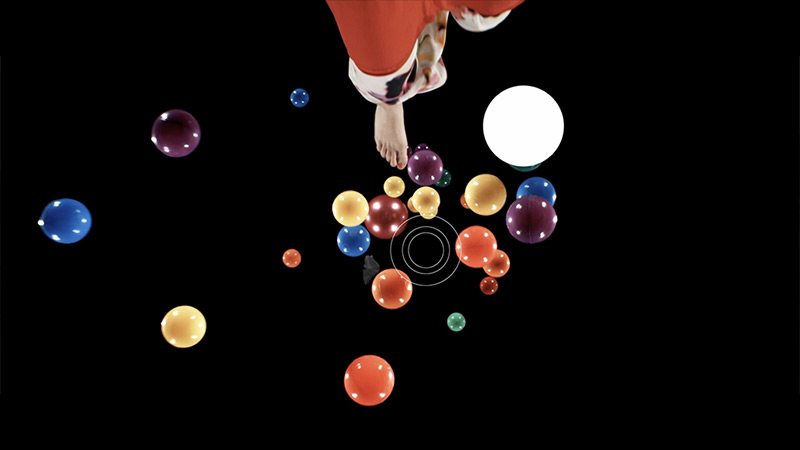
Result
5,950:1

Result
900:1

Result
800:1

Result
700:1

Result
700:1

Result
650:1
Halo effect and black detail visibility:

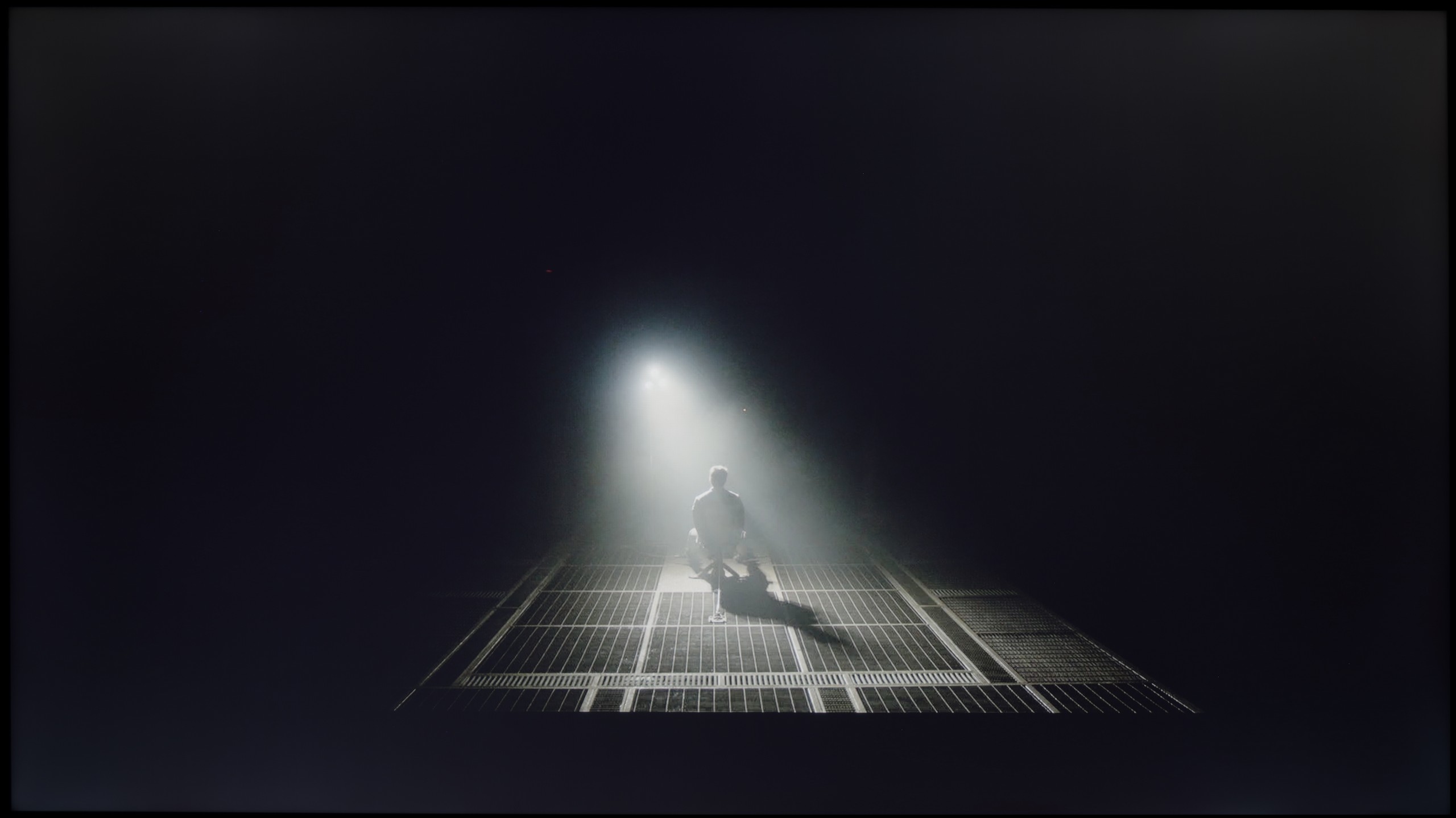
The TCL 655 PRO television, equipped with a VA panel, delivers solid contrast; however, the key role in enhancing image quality is played by local dimming technology. The tested 55-inch variant features 84 backlight zones, which significantly improve contrast compared to the model without the "PRO" designation, and this effect is distinctly visible in the first three tested scenes. It is worth noting that larger versions of this television naturally have more zones, which translates to even better contrast. Of course, as with any LCD television, certain imperfections remain – particularly noticeable in the tested scenes 4 and 5, where smaller bright elements lose a lot of quality. Nevertheless, considering the price of the device, the TCL 655 PRO makes a strong impression and stands out well in the black and contrast category.
Samsung U8000F, more specifically model U8092F in the 55-inch version, is equipped with an IPS panel. Let's be honest – this is not the best choice when it comes to properly displaying black levels and contrast. The results in this category are simply weak. The contrast is abysmal, and watching dark scenes with any kind of "cinematic" effect is nearly impossible. Additionally, the fact that the television lacks local dimming does not help, making it difficult to achieve better results. The only thing worth praising is the fairly decent uniformity of the panel – but that's more of a minor consolation. Overall, it's not good. If you value deep blacks and reasonable contrast, it is definitely better to opt for the variant with a VA panel, which performs significantly better in this particular series.
HDR effect quality
5.1/10
2.7/10
Luminance measurements in HDR:

Result
566 nit
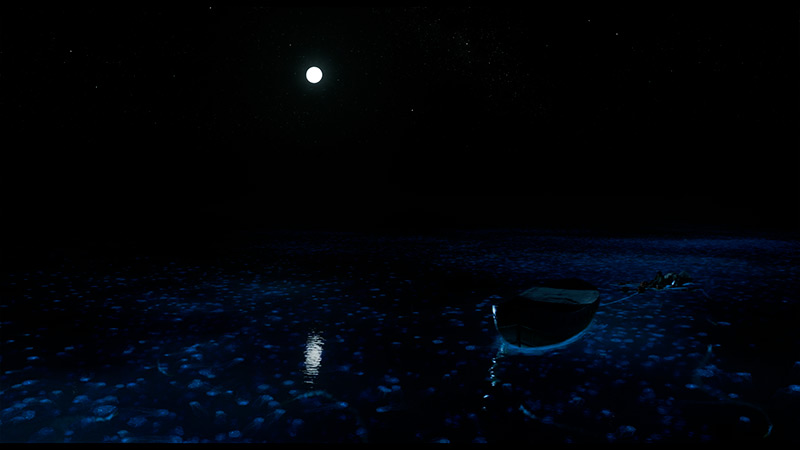
Result
299 nit
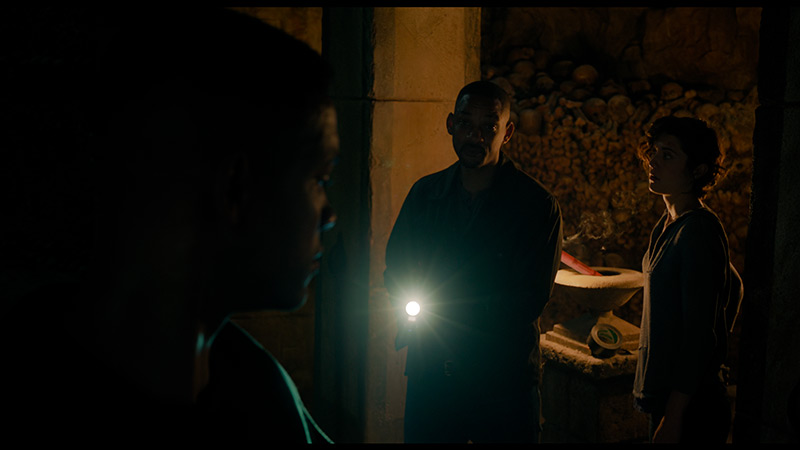
Result
387 nit

Result
205 nit

Result
666 nit

Result
191 nit

Result
224 nit

Result
241 nit

Result
79 nit

Result
234 nit
Scene from the movie “Pan” (about 2800 nits)


Scene from the movie “Billy Lynn” (about 1100 nits)

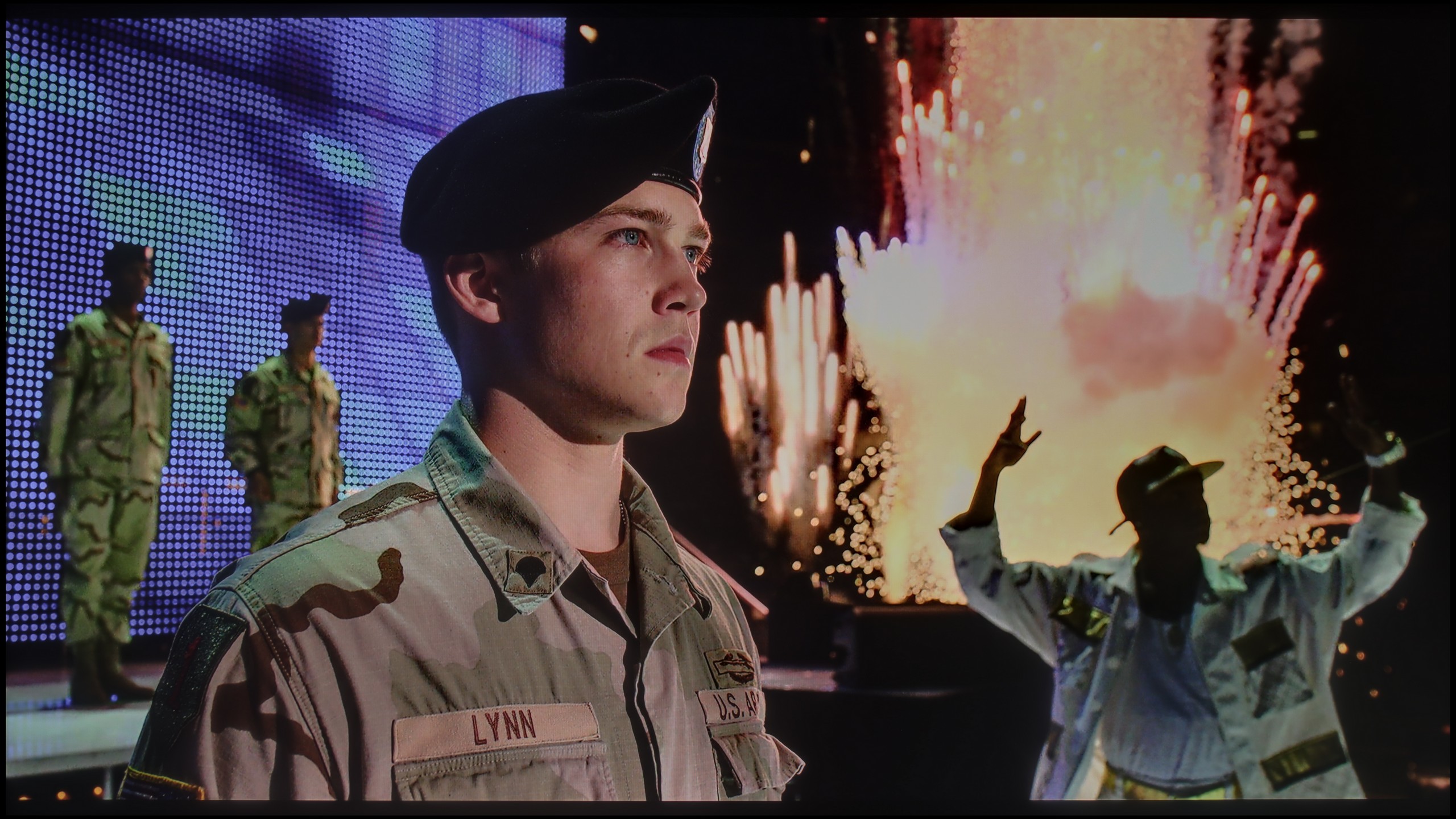
Static HDR10


Dynamic: Dolby Vision
Dynamic: HDR10+


HDR luminance chart:
Samsung U8000F (IPS)
Luminancja HDR
Luminance of RGB colors
TCL C655 Pro
Luminancja HDR
Luminance of RGB colors
In the HDR effect quality category, the television TCL 655 PRO demonstrates decent capabilities, achieving a peak brightness of 550 nits. This allows for enjoyment of the HDR effects, which is particularly evident in scenes such as the first from the film Life of Pi or the last frame from The Meg. Nevertheless, the limited number of dimming zones causes some issues. While in bright scenes the television performs better than its lower model, in more demanding scenes, such as the second and fourth scenes from Sicario 2, it struggles. The dimming algorithm aims to achieve deep blacks, but at the cost of brightness – resulting in a drop in brightness of even half during those moments. In these more challenging scenes with small elements, it is hard to find any praise, and the HDR effect resembles more of an SDR. Regardless, the colour gamut coverage deserves commendation, which, like in the version without the PRO suffix, is at a very good level.
Better does not mean good – and that is exactly how to summarise the capabilities of U8092F when it comes to displaying bright movie scenes in HDR mode. The brightness of the panel is just under 250 nits, which is definitely too little to enjoy any light effects. An interesting situation was observed during the measurement of the fourth scene from the film Sicario 2 – the television clearly dimmed the entire screen in an attempt to achieve better black levels (which remain weak anyway). One might even suggest that the device is using some form of 'global dimming', but unfortunately – the results are still very poor. To make matters worse, the television does not support a wide colour gamut – the coverage of the DCI-P3 space is around 80%, so one cannot expect truly vibrant colours. The HDR image here looks more like a slightly brightened SDR, and it is this form that we would suggest sticking to when it comes to this television.
Factory color reproduction
3.8/10
6.5/10


Factory Mode
After calibration
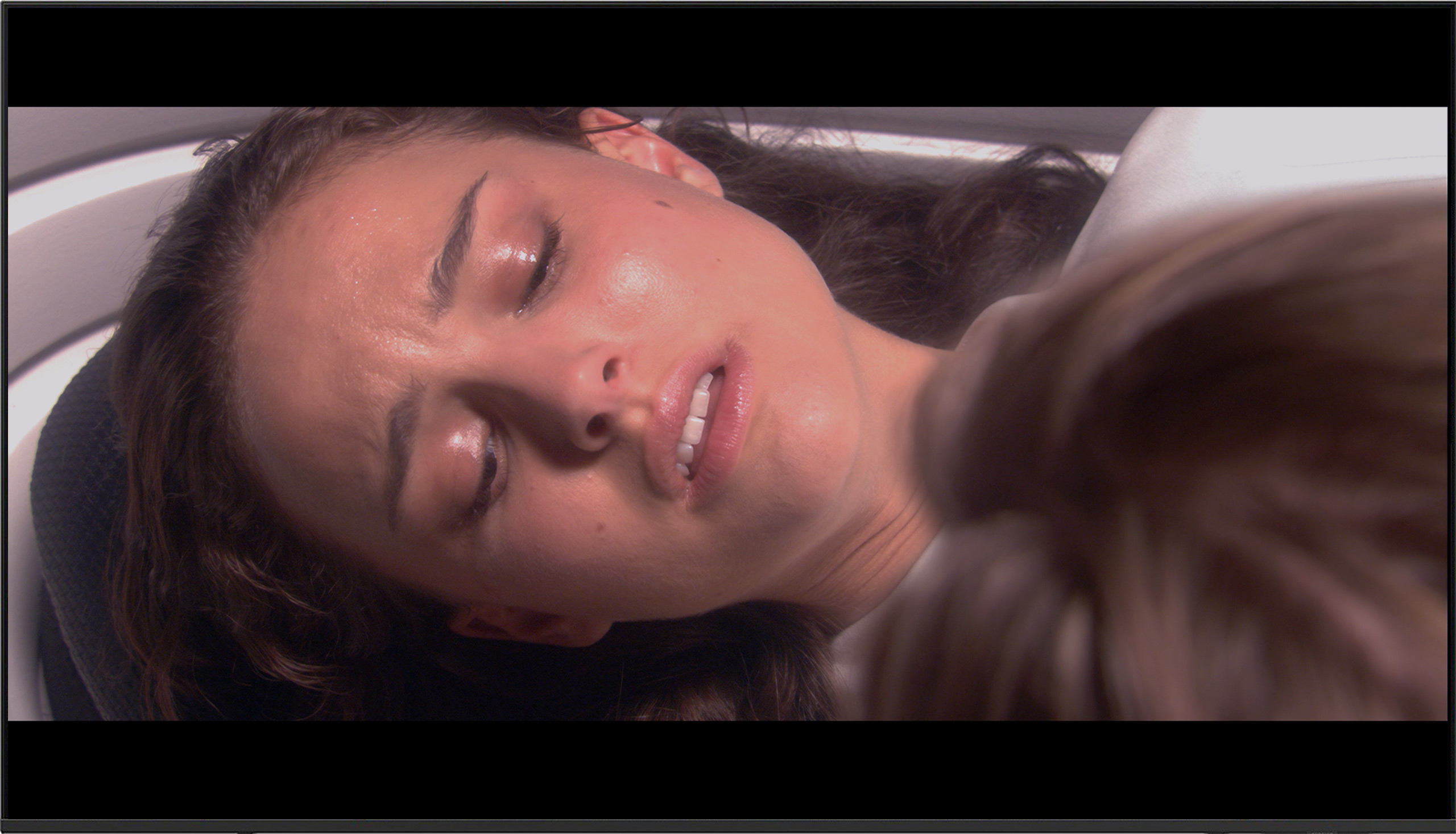
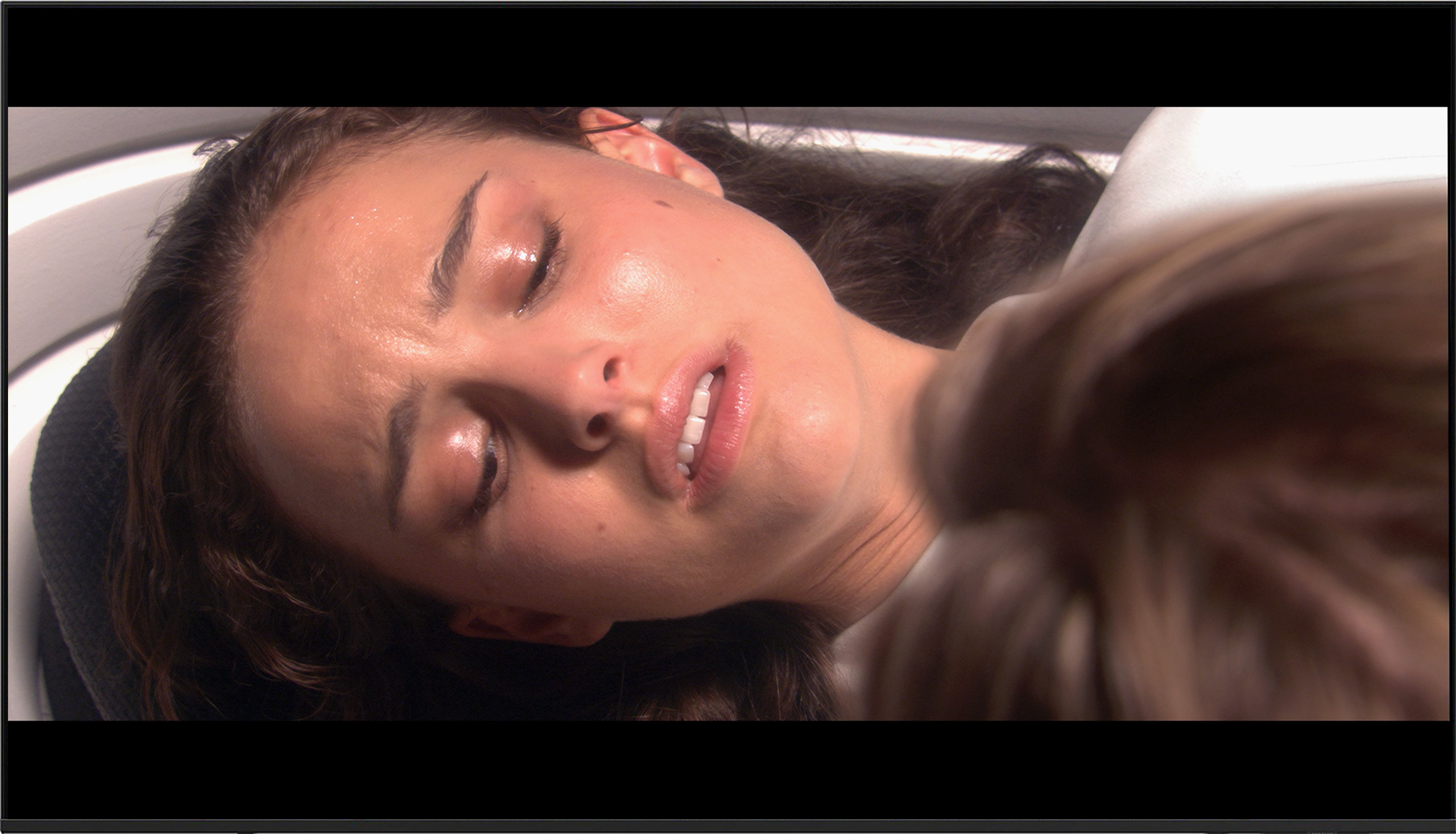
Factory Mode
After calibration
Each of our television tests is conducted in film mode, which usually offers the best colour reproduction. Nonetheless, even this mode is not free from issues, as we noted in the model TCL 655 PRO.
In the case of HD content, the white balance distinctly shifts towards red, and this effect becomes particularly noticeable in a scene from Star Wars, where the white elements of the scenery take on a pink hue. For 4K HDR material, the situation is better, but there is a noticeable tendency to excessively emphasise the colour blue. As a result, the picture may appear artificially sharp, which proves to be uncomfortable for the eye over a longer period. The brightness characteristics also leave much to be desired. The Gamma graph indicates serious difficulties with excessive brightening, causing the overall presentation to appear washed out. Additionally, the EOTF curve reveals significant problems with reproducing very small elements – they are overly dimmed, as we detailed in the paragraph concerning HDR effects.
The Samsung U8000F has been tested in the best possible picture mode built into the television, namely Filmmaker Mode. This mode should – at least in theory – offer a cinematic, reference picture without unnecessary enhancements. In the case of SDR content (mainly HD/SD), the television, out of the box, showed itself surprisingly well. Errors in white balance hovered around a value of 3, which is roughly on the edge of perceptibility. The only complaint could be about brightness management – the gamma graph showed a slight tendency to lighten or darken certain sections, but even so, the overall performance is quite good for this price segment.
Unfortunately, it looks much worse in HDR mode. Although the white balance was not terrible, the television had significant colour errors – particularly evident in the Color Checker graph, where almost every sample hit outside the target point. The picture in HDR simply looks unnatural, and the colours can be shifted, dull, or too cool. This largely stems from the fact that the U8000F does not support a wide colour gamut (DCI-P3). The television is physically unable to display correct colours in the HDR standard – and unfortunately, this is felt in every more demanding material.
Color reproduction after calibration
7.8/10
7.5/10

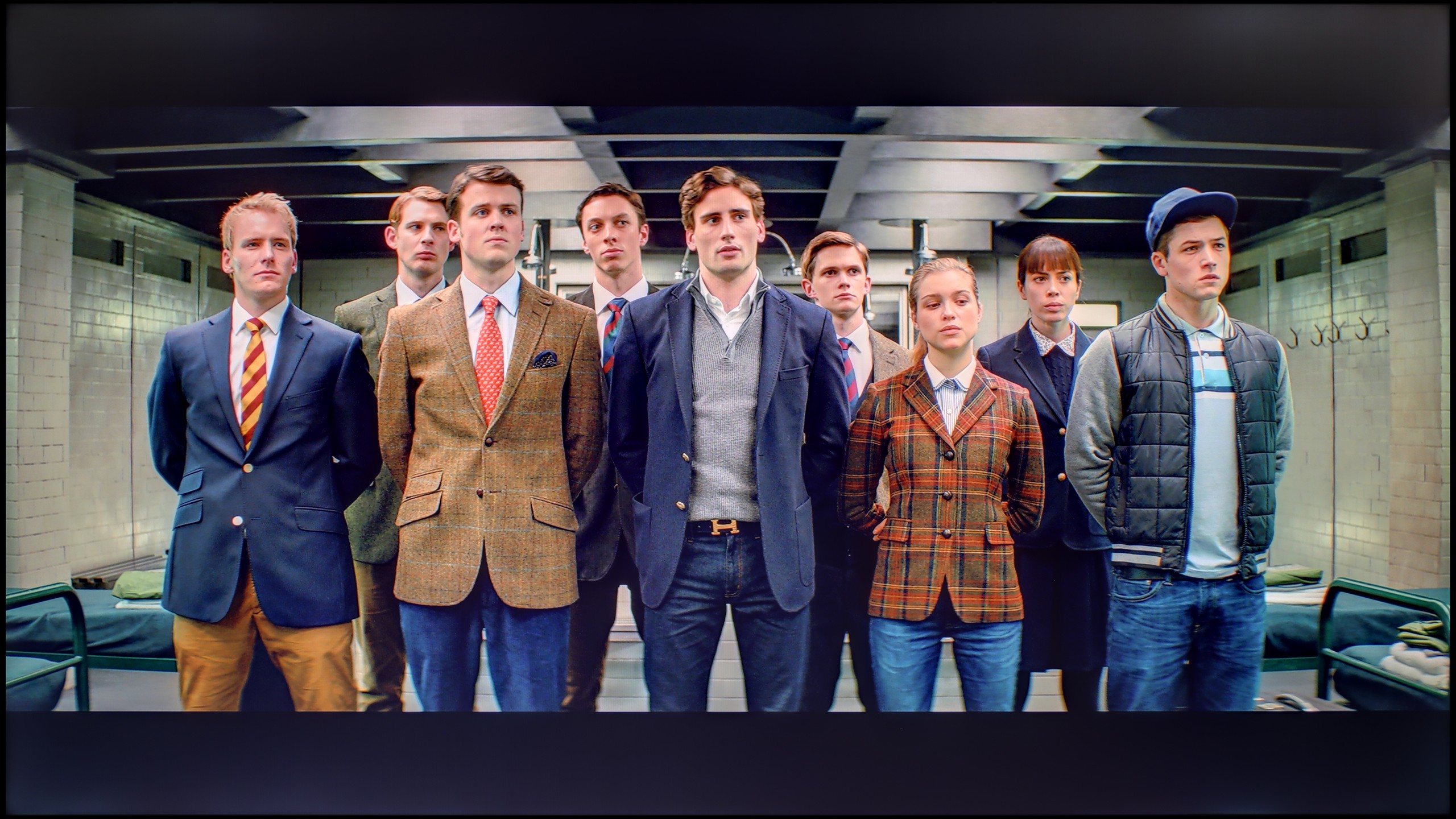

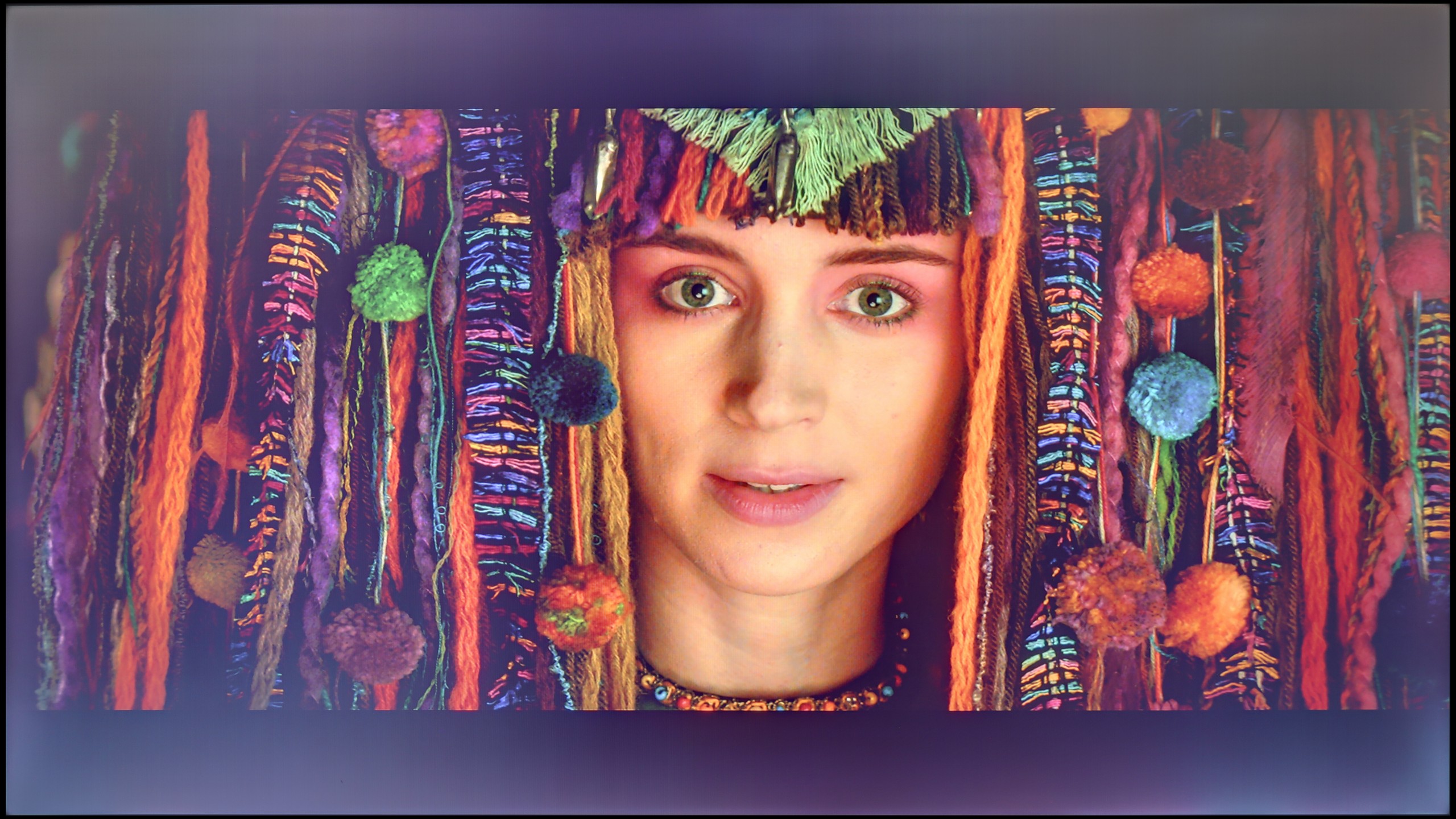
After calibrating the television TCL 655 PRO, a noticeable improvement in white balance is evident, where the tendency for the screen to have an excessive pink hue has been completely eliminated, which was previously visible in the factory mode. The image has taken on more natural tones, especially in white and light elements, positively affecting the overall perception of the picture. Regarding brightness characteristics, the Gamma chart has also improved – the screen is no longer overly bright, which previously made the image appear washed out. However, there are still some issues with the EOTF curve, which are difficult to eliminate due to the design of the television and its limited number of backlight zones. These limitations prevent achieving perfect results in this regard. Nevertheless, despite this minor flaw, the overall effect after calibration is truly outstanding, providing high picture quality and very good colour reproduction.
Although the U8000F already offered a fairly well-balanced image in SDR straight out of the box, we were able to refine it a bit further. We managed to eliminate a slight purple tint and adjust the gamma to a more sensible level. However, the television still has a tendency to overexpose the smallest and brightest parts of the image – the gamma chart shows a characteristic 'dip' that is difficult to completely straighten out.
Unfortunately, the situation is worse in HDR. It's hard to speak of any significant improvement here – the television is simply not designed for HDR content. We tried to correct the image in the advanced settings, but despite our efforts, the colour errors remained substantial – a delta E above 7 indicates very noticeable deviations. It's a bit disappointing, but that's the nature of budget construction. In SDR, the U8000F performs reasonably well, whereas HDR is just not its league.
Smoothness of tonal transitions
4.8/10
9/10



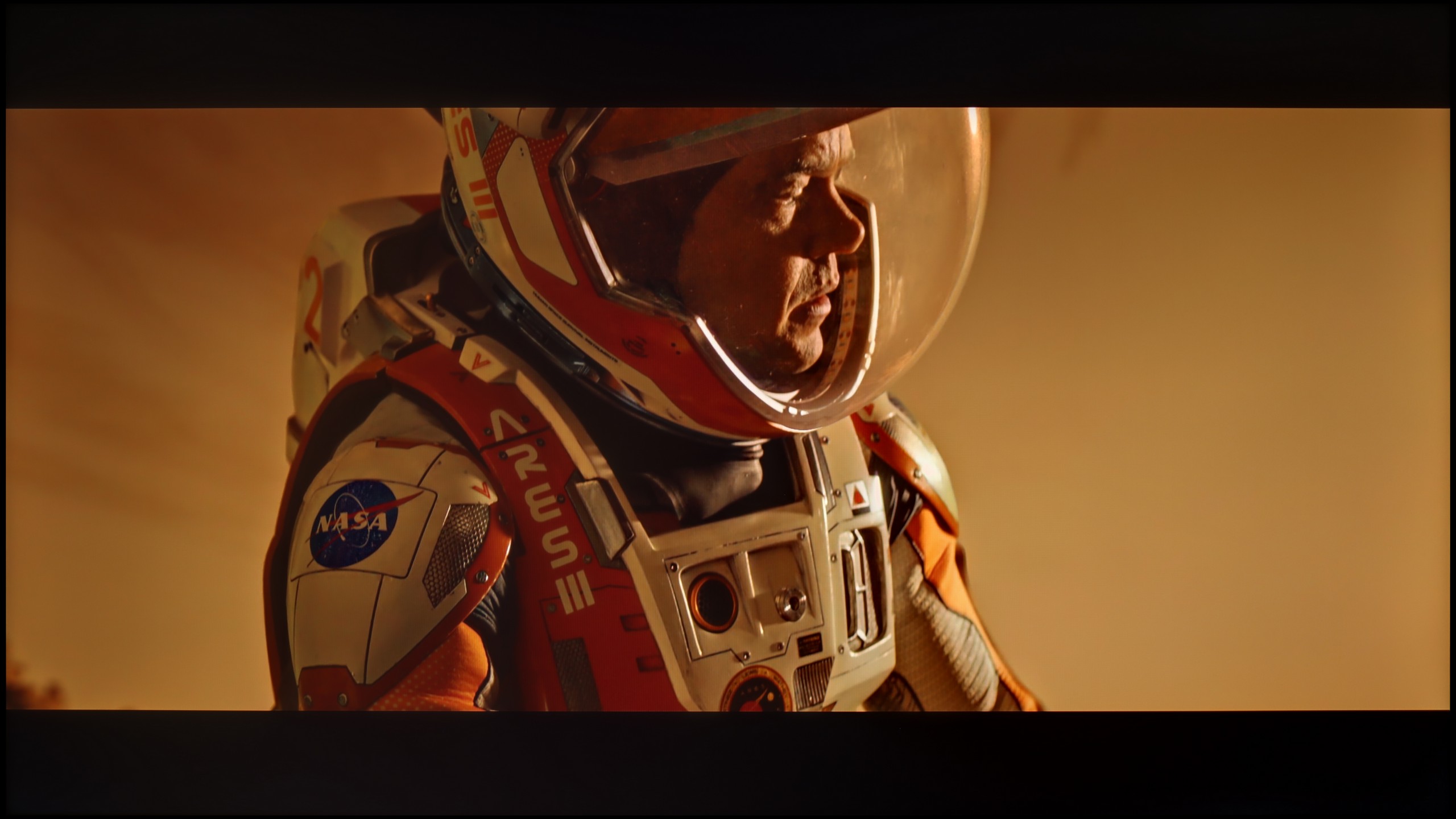

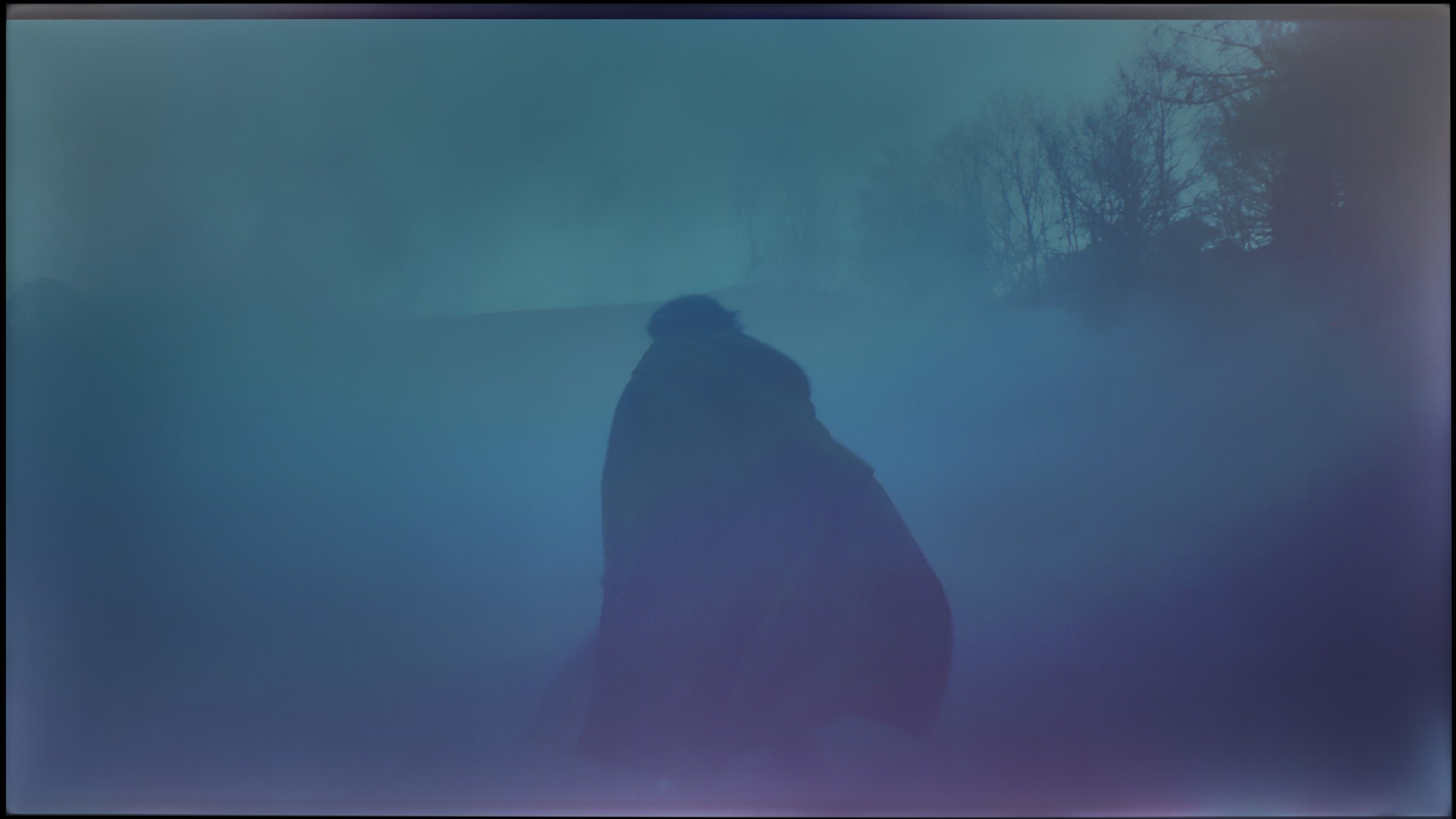






The tonal transitions are really quite good and would deserve a high rating (8), however, the score has been clearly lowered for another reason - the image is artificially sharpened despite the "sharpness" setting being at 0. As a result, the image is unpleasant to look at.
Another important aspect to consider when assessing image quality is the smoothness of tonal transitions – that is, how well the television handles the blending of colours and shades. And here the Samsung U8092F performs... almost perfectly. On the test patterns, there are no noticeable stepping transitions, no issues with colour gradients, and the whole picture is not artificially sharpened, which unfortunately happens with many televisions in this class. The image appears natural and very clear. We noticed minimal issues with the brightest scenes, but that is more nitpicking, which only a very trained eye will catch.
Image scaling and smoothness of tonal transitions
5/10
5/10
Smooth transition function

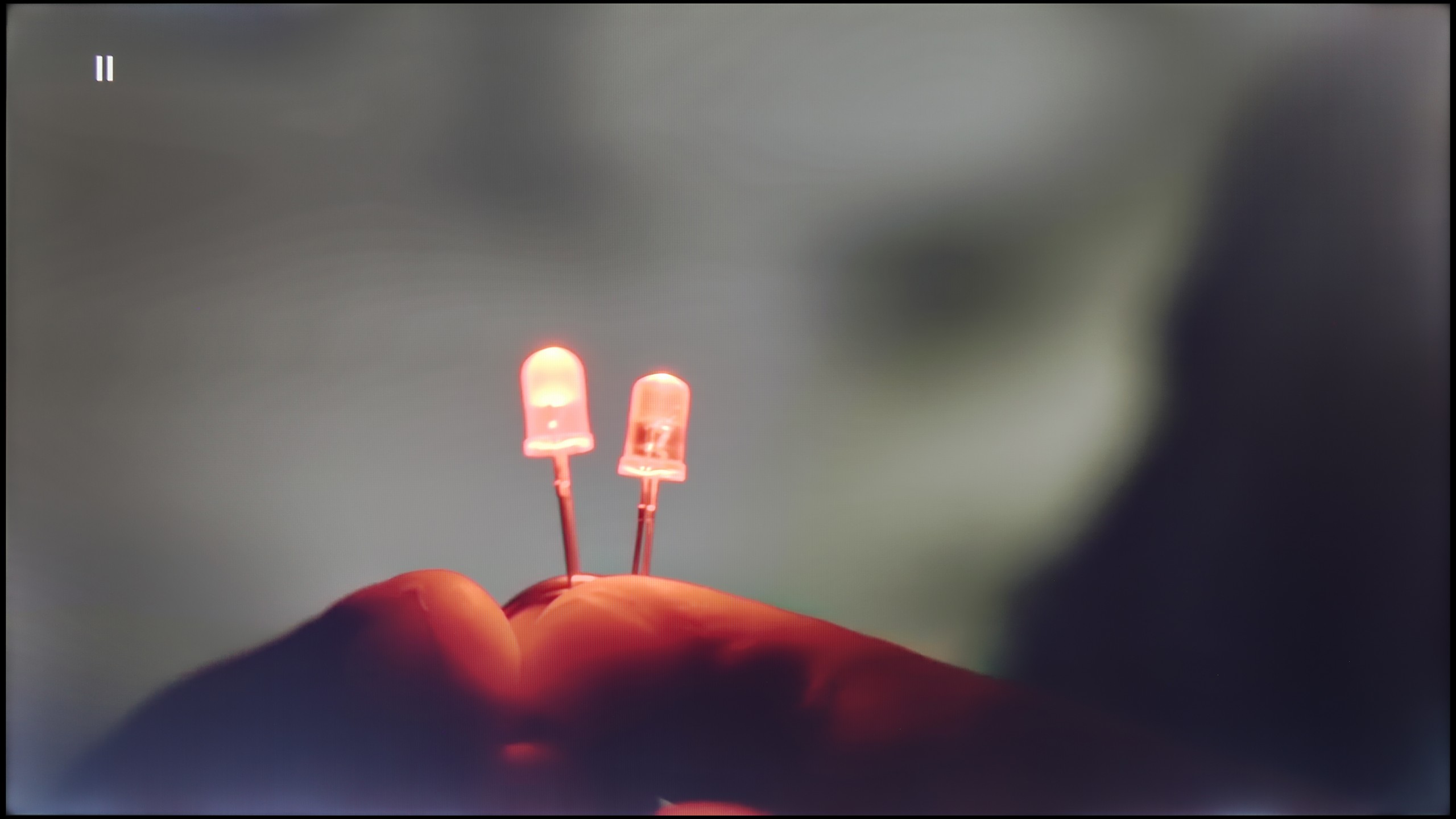
Image without overscan on the SD signal


The TCL 655 PRO television performs quite well with tonal transitions in lower quality materials. The "Gradual Smoothing" function at a low setting effectively smooths out tonal transitions, but this comes at the expense of losing some important details, such as the texture of objects. One positive aspect is that it does not negatively affect film grain, which helps maintain the natural appearance of the image.
In the context of digital processing, the television adds artificial sharpness. This may appeal to users who prefer a more vivid image. However, those who like a softer, subtler look may find this a drawback. Additionally, a downside is the cropping of the image due to overscan, which limits the field of view and trims the edges of the frame. This can be problematic in certain scenes - for example, news tickers.
When it comes to how the Samsung U8000F handles lower quality materials, we must admit that Samsung has made progress compared to its predecessor from last year – namely the DU7192 model, which theoretically occupies the same spot in the range.
This year's model has been equipped with a feature that enhances the fluidity of tonal transitions, which has been implemented much better than last year. Yes, the television still uses fairly strong algorithms that can distort details or remove film grain, but despite that – it can be confidently said that it works effectively.
However, not everything has gone perfectly. The U8000F has noticeable issues with slight image stuttering when watching very old content in very low resolution. If someone plans to play their old VHS tape, they must reckon with the fact that the image may appear slightly "choppy".
Blur and motion smoothness
4.9/10
6/10

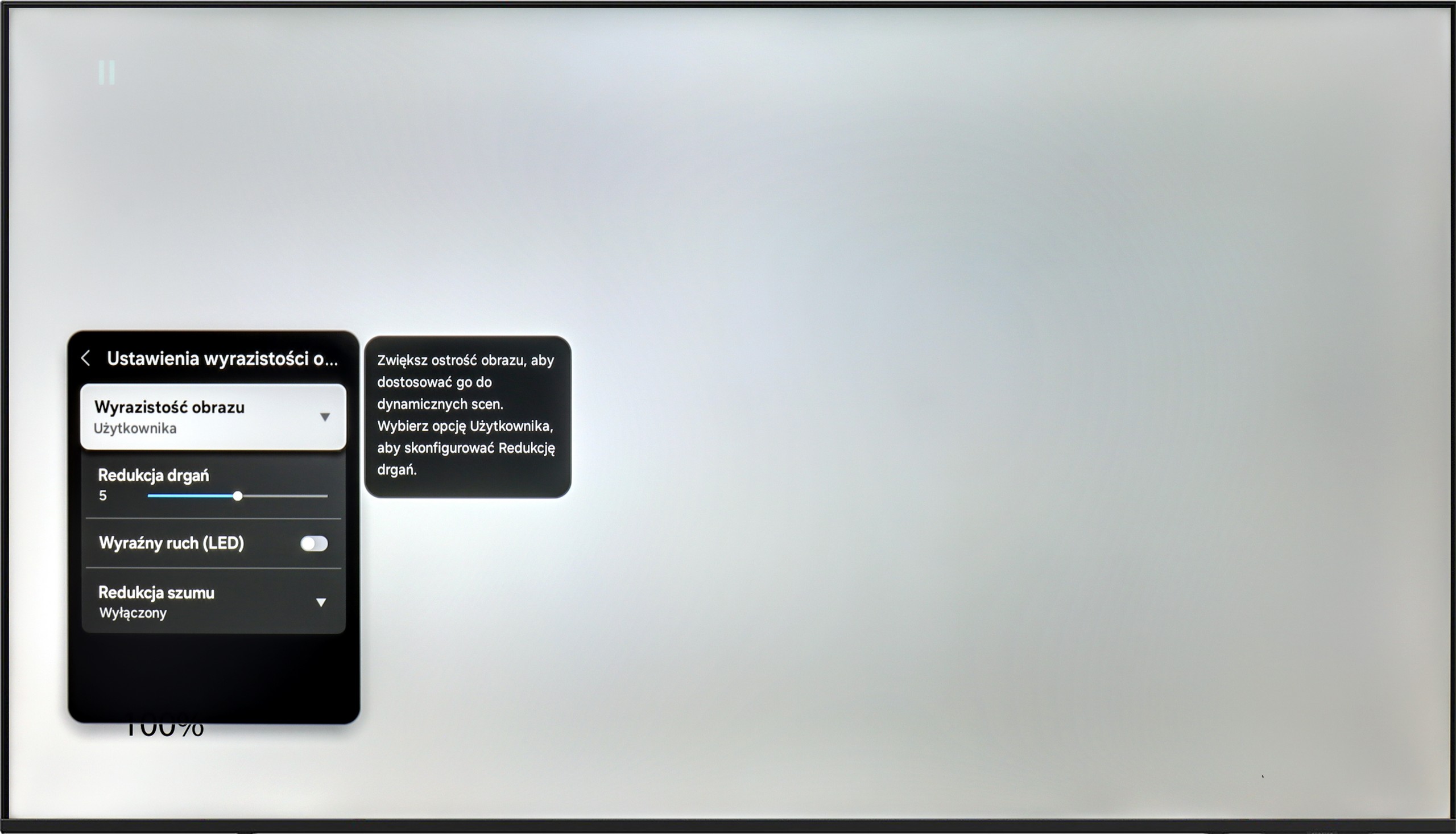
Blur (native resolution, maximum refresh rate):




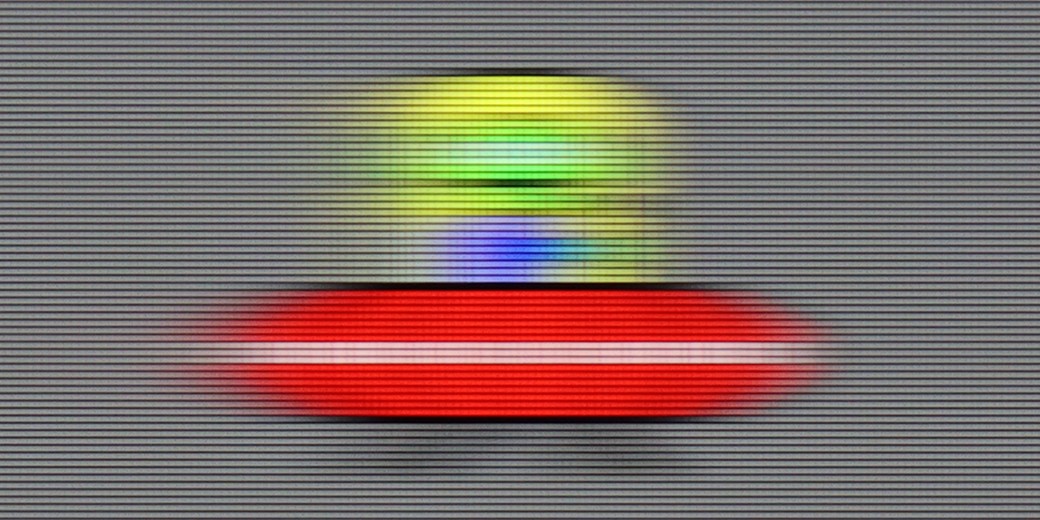
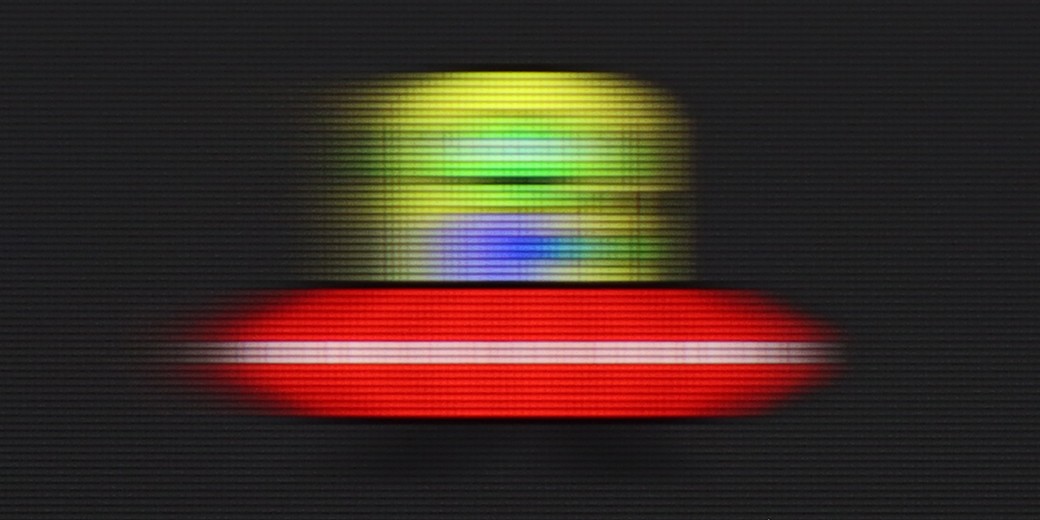
Smużenie ():



Smużenie ():
The TCL C655 PRO television is equipped with a 4K panel with a refresh rate of 60 Hz, making it best suited for watching films. Additionally, the "Flicker Reduction" feature allows users to adjust the smoothness of the image, giving them the choice between a smoother motion and a cinematic, frame-by-frame effect. Moreover, the television performs well with lower resolution materials, such as Full HD and 2K, offering a refresh rate of 120 Hz, which will certainly appeal to gamers who can enjoy a smoother picture at the expense of lower resolution.
The Samsung U8000F is equipped with a 60 Hz panel, so it's clear from the outset that we shouldn't expect miracles. It's simply the standard in this class – sufficient for everyday viewing but without any fireworks.
The television offers a single motion smoothing slider – a function called “Motion Blur Reduction”, which allows us to adjust the smoothness of the image in films. Higher settings provide a more “theatrical” and smoothed effect, while lower settings maintain the original character of the film with a slight 24p effect. An interesting feature is “LED Clear Motion”, which is a BFI mode – that inserts black frames between frames of the image to improve motion clarity. However, in practice, the screen flickers quite a bit when this feature is activated, and it should be regarded more as an experiment than something that genuinely enhances the comfort of gaming.
Console compatibility and gaming features
8/10
4/10
- ALLM
- VRR
- VRR range48 - 120Hz48 - 60Hz
- Dolby Vision Game Mode
- Correct implementation of HGIG
- 1080p@120Hz
- 1440p@120Hz
- 4K@120Hz
- Game bar

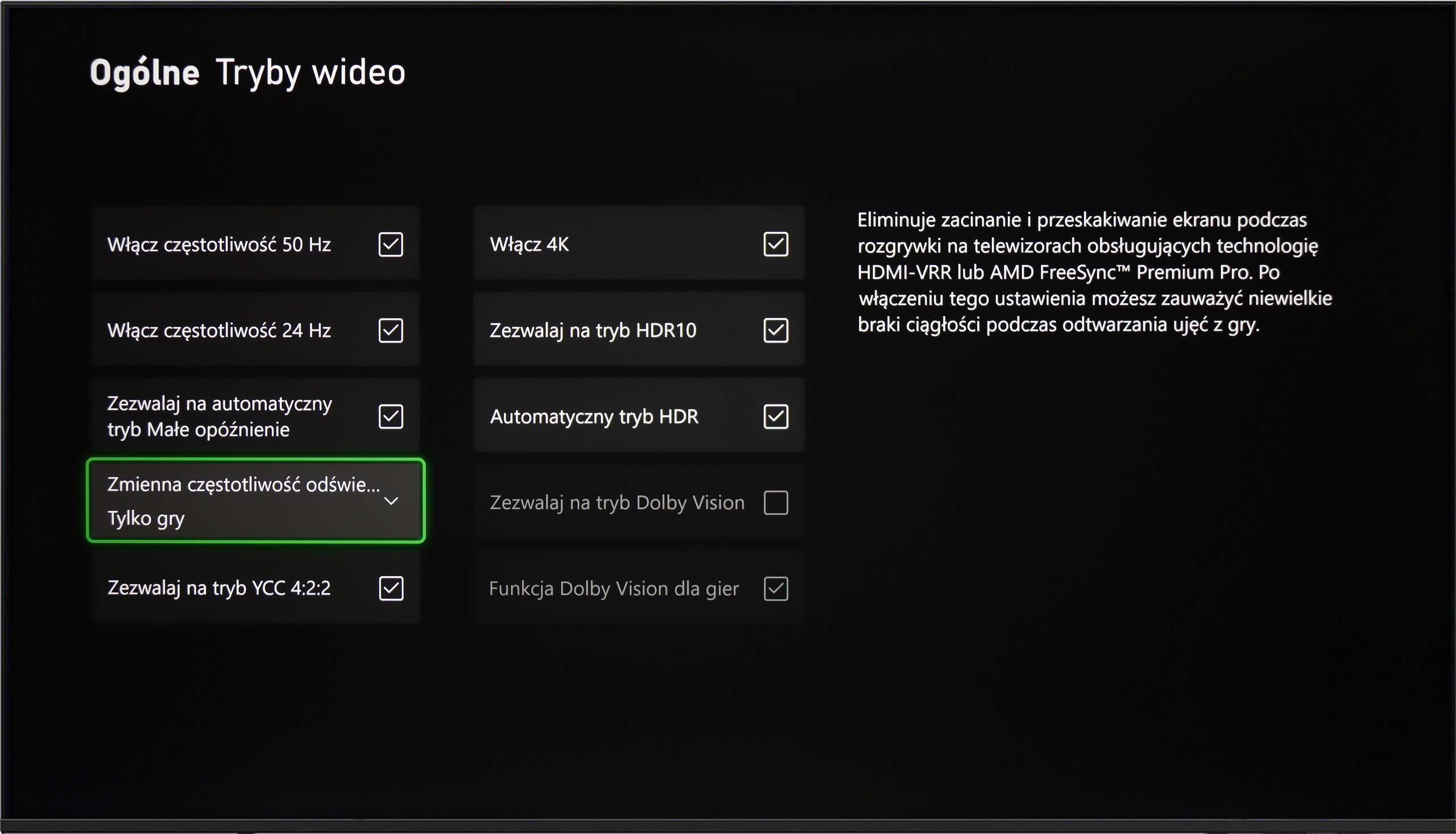

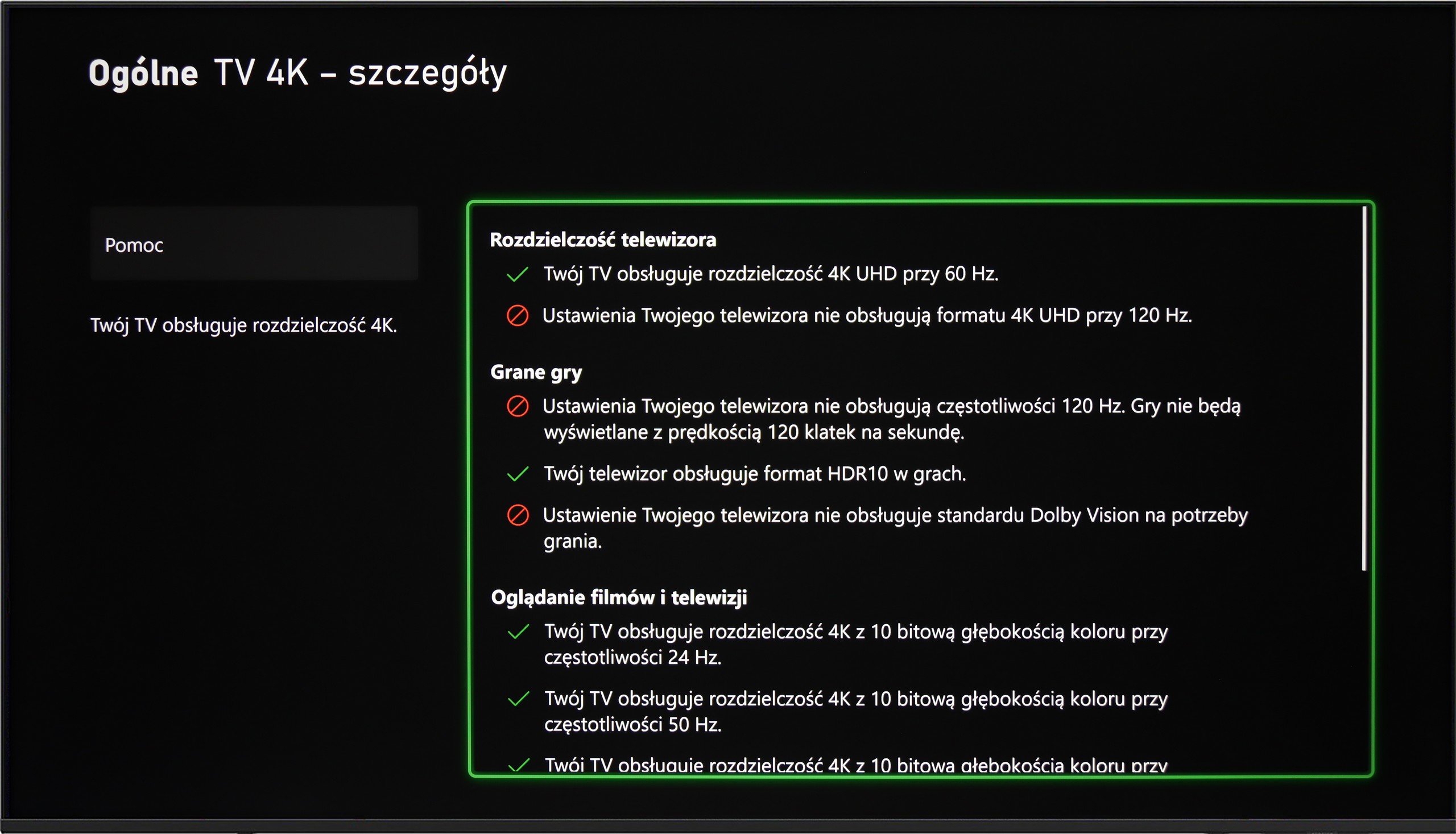

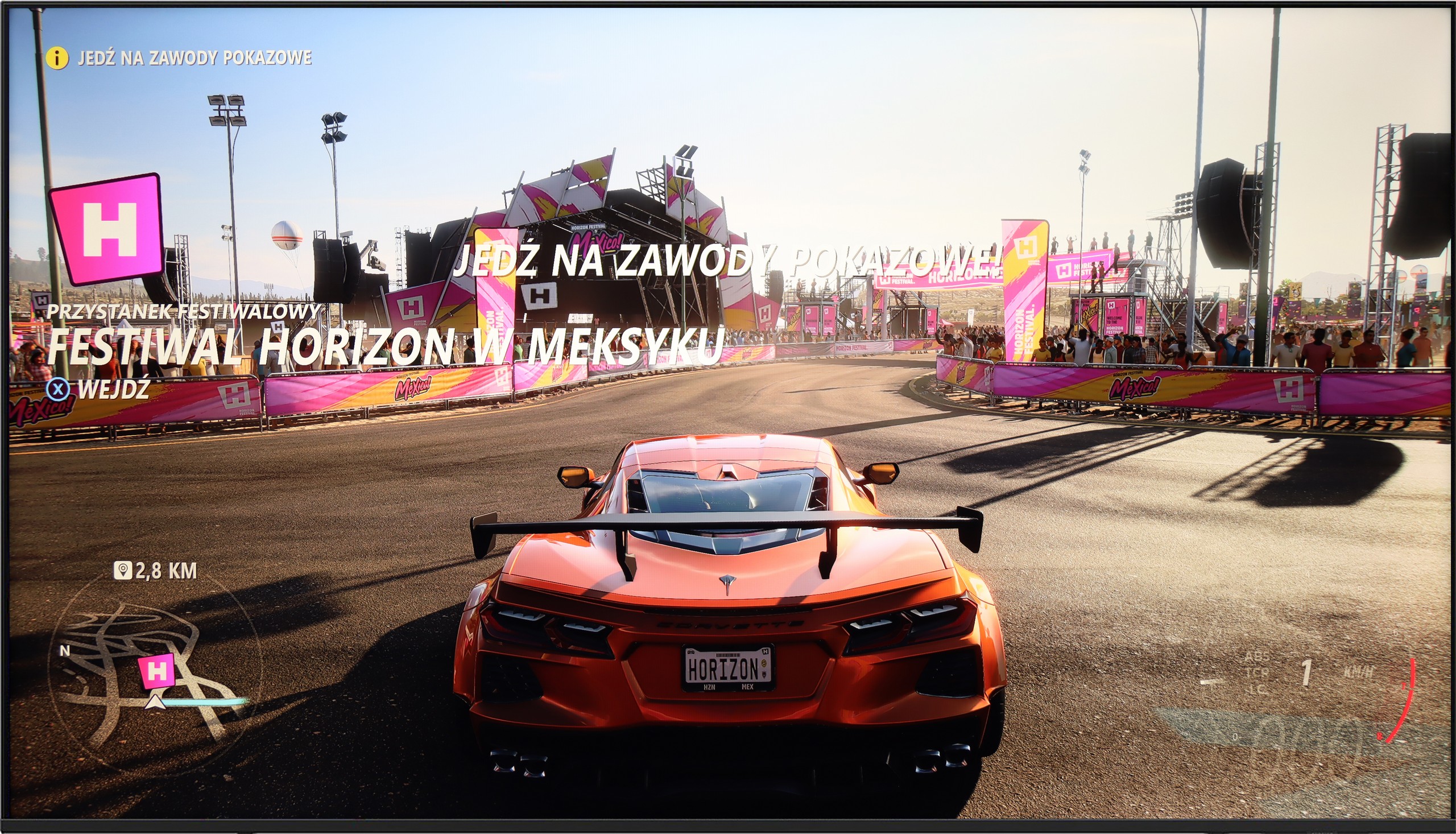


The TCL C655 PRO television offers an almost perfect set of features for gamers, supporting all the key technologies that significantly enhance the gaming experience. The ALLM feature automatically switches the television to low latency mode, resulting in improved responsiveness and minimal signal delay – particularly important in dynamic titles. VRR synchronises the screen refresh rate with the number of frames generated by the console, eliminating screen tearing and thus guaranteeing smoother gameplay.
Support for Dolby Vision in gaming mode allows for more detailed colour and contrast reproduction in games that support this format, while the Game Bar provides quick access to essential settings such as response time and latency level. Unfortunately, the model does not support 4K resolution at 120 Hz, which may disappoint the most demanding gamers. However, for those willing to forgo 4K, support for Full HD and 2K at 120 Hz delivers exceptionally smooth visuals, presenting an attractive alternative for enthusiasts of higher refresh rates.
The Samsung U8000F offers a basic set of features for gamers, which may still prove sufficient for less demanding users. It includes an automatic game mode – upon launching a game on the console, the television automatically switches to low latency mode, significantly improving response times. We also find a VRR feature, meaning variable refresh rate, which operates within a range of 48 to 60 Hz. This means that both Xbox and PS5 will not produce the effect of screen tearing – provided, of course, we stay within this range.
Unfortunately, that is about it when it comes to advantages. Add-ons like Game Bar or higher refresh rates are reserved for higher models of Samsung's 2025 line. In theory, the television also supports the HGiG function, which should adjust HDR images to the intentions of game developers. Unfortunately – despite this feature appearing in brochures and retail materials – its configuration on the Xbox console has proven to be... impossible in practice.
Input lag
10/10
10/10
SDR
HDR
Dolby Vision
The TCL C655 PRO television offers exceptional response times across all supported resolutions and refresh rates. Notably, it supports Dolby Vision with a response time of 13 ms, which is rarely seen in the competition. As a result, gamers can enjoy outstanding responsiveness even when using advanced HDR effects, significantly enhancing the gaming experience.
The Samsung U8092F performed phenomenally in our input lag tests. Regardless of resolution or mode – the results were very low, which is truly impressive for this price segment. One can confidently say that playing on this television will not cause frustration due to large delays between what we do on the controller and what we see on the screen. For most gamers, even the more demanding ones, this result should be more than satisfactory.
Compatibility with PC
6/10
6/10

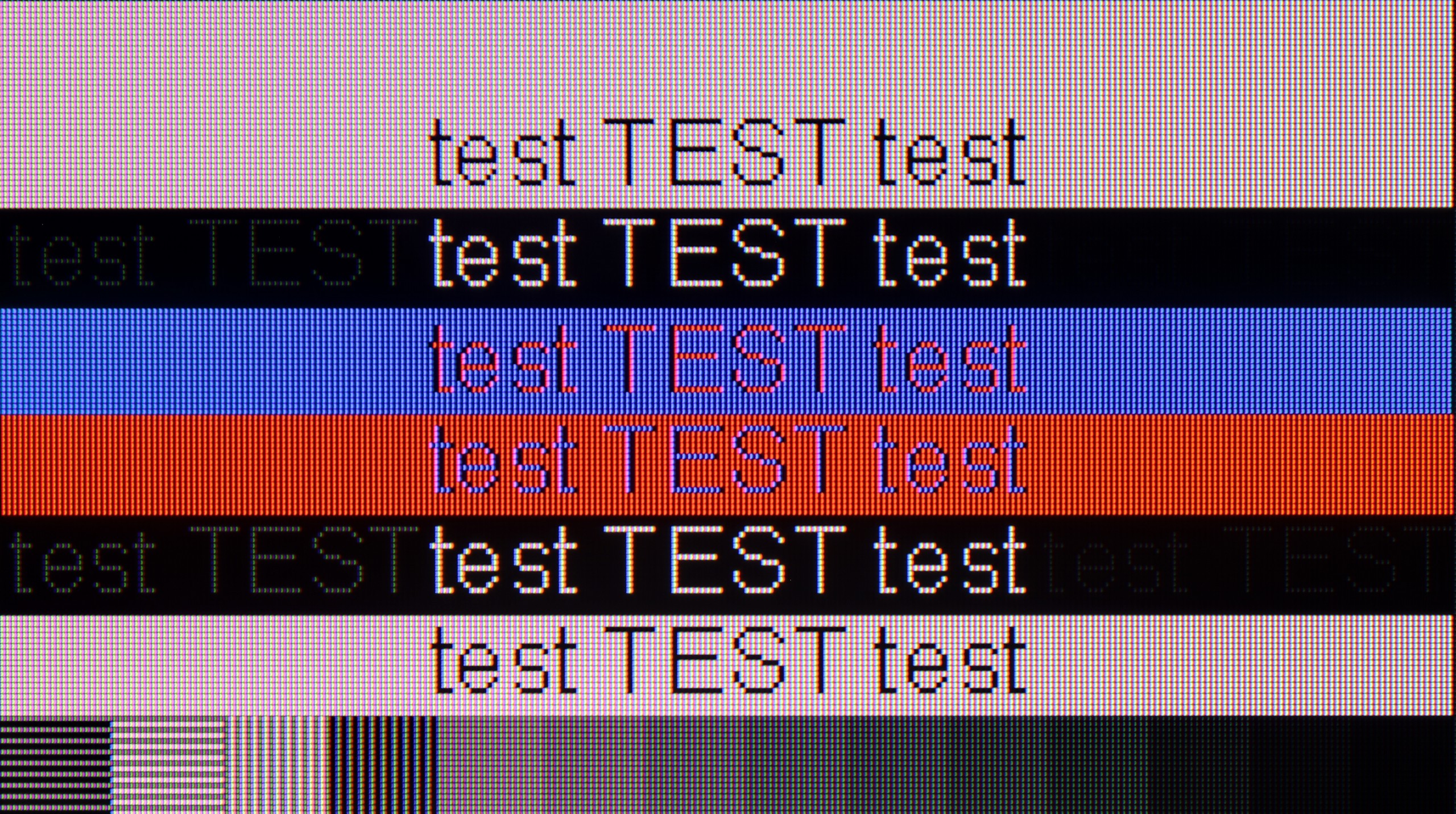
Collaboration with a PC on the TCL C655 Pro television is quite good, especially thanks to support for 4:4:4 chroma, which ensures good readability of fonts. This is a significant advantage if the television is to serve as a monitor for office work, where precision in text display is crucial. Additionally, the low input lag provides smooth operation, which will be appreciated by both gamers and users who require quick responses to mouse or keyboard movements.
One minor flaw that can be noticed is the fact that in vertical lines, there is sometimes a drop of one pixel. This can make letters appear slightly interrupted, which in certain situations may somewhat reduce work comfort, although generally, this issue should not be very bothersome for less demanding users. The television does not support 120Hz at its maximum resolution, hence a lower rating compared to higher models. However, TCL has ensured that users can enjoy smooth gameplay at 120Hz at lower resolutions such as 2K and FullHD.
Working on a computer with this television is an absolute pleasure. The Samsung U8092F supports chroma 4:4:4, and thanks to the layout of the sub-pixels in the IPS panel, the readability of fonts – regardless of colour or size – is very, very good. The television is also suitable for occasional gaming on PC, primarily due to its low input lag. However, one must take into account that the G-Sync function does not work on this model, which is odd as VRR functioned without any issues when it came to the console.
Viewing angles
2.7/10
7/10
The viewing angles on the TCL C655 PRO, as is typical for VA panels, are quite limited. Compared to IPS panels, which maintain image quality regardless of the viewing angle, the VA panel in this model quickly loses contrast and colour saturation, even with a slight deviation from the axis. Watching at an angle causes blacks to appear greyer, while colours lose their depth and intensity. For this reason, the television is better suited for rooms where viewing takes place mainly straight on. It is not a television that is an ideal choice for large spaces where viewers may be seated at various angles.
The viewing angles on the Samsung U8092F are very good – as one would expect from an IPS panel. The image does not lose much in terms of brightness or colour saturation, even with a greater deviation from the axis. Of course, this is not at the level of organic screens – but it is more than sufficient to comfortably watch the image at an angle, for example, from the side of the sofa.
TV efficiency during daytime
5.8/10
3.4/10

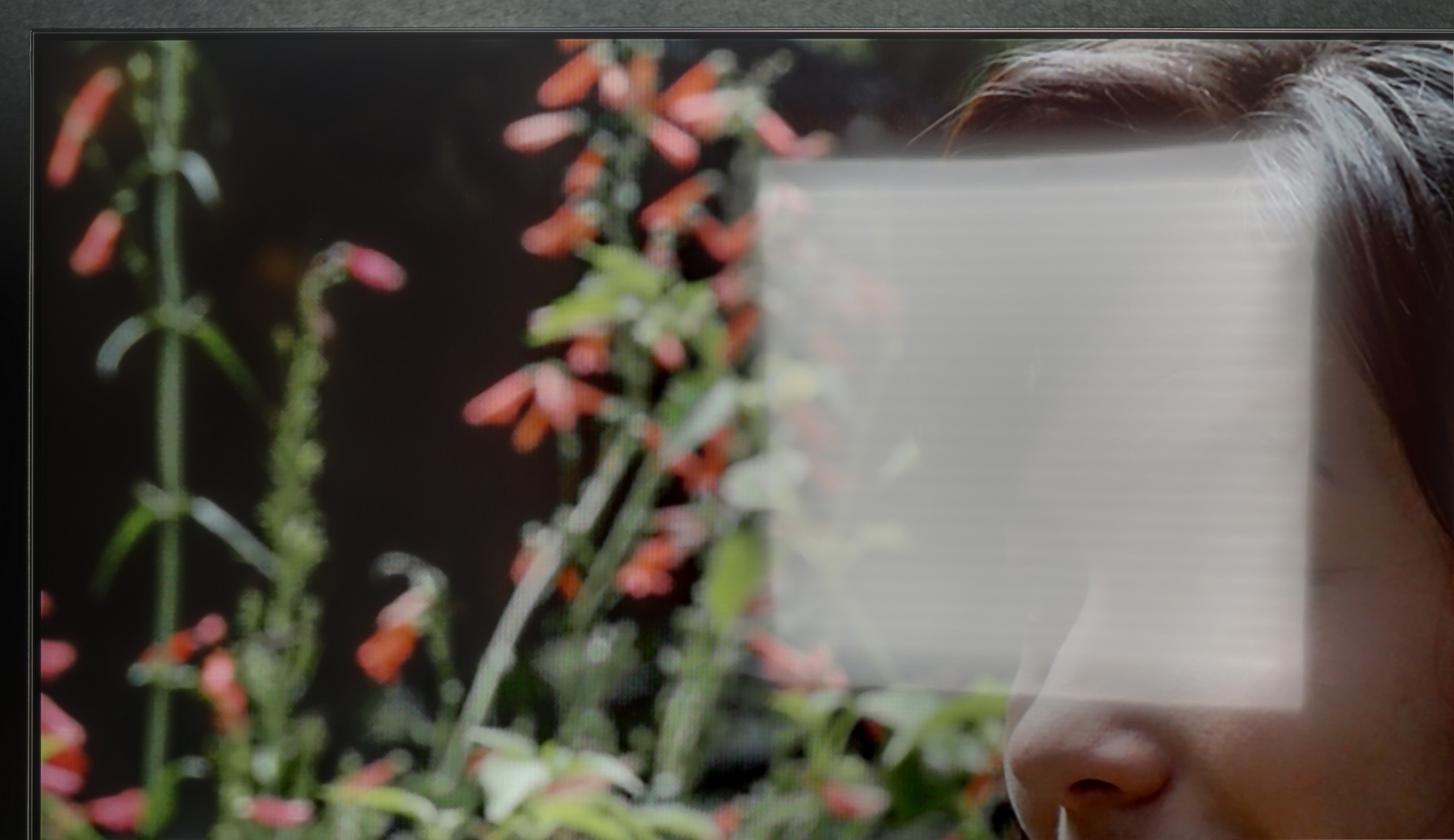

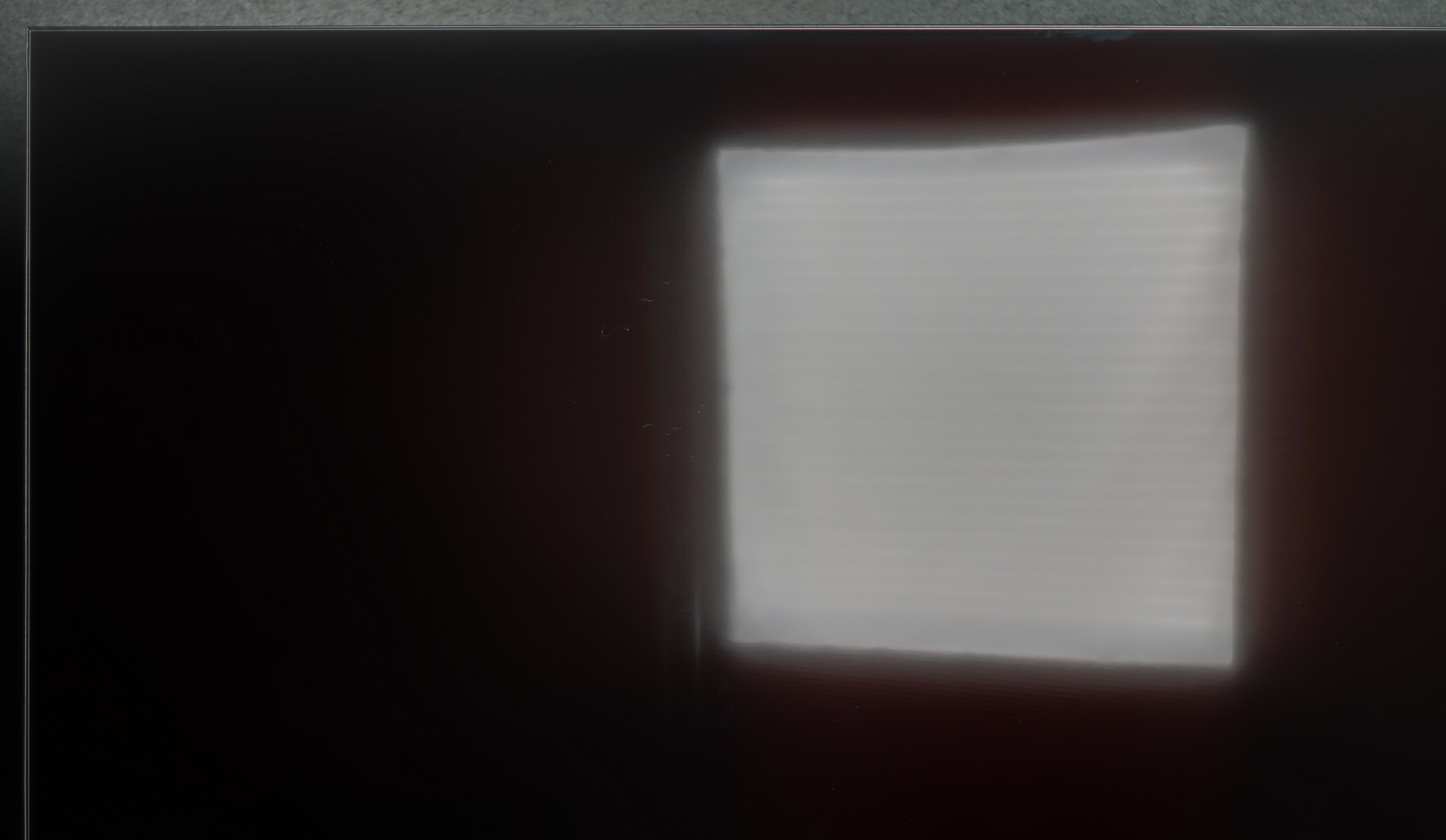
Matrix brightness
Average luminance SDR
Samsung U8000F (IPS): 218 cd/m2
TCL C655 Pro: 519 cd/m2
TCL C655 PRO offers quite decent brightness, reaching around 520 nits, which makes using the television during the day comfortable. Such brightness allows for good visibility of the image even in rooms with more sunlight. Although the television performs well in such conditions, the satin finish of the screen has only average capabilities to suppress reflections. In very bright environments, reflections may appear, which somewhat degrade the visibility of the image, particularly in scenes with lower contrast.
Thanks to the satin coating of the Samsung U8092F panel, it handles reflection suppression quite well. The screen does not function like a mirror, and the colours – considering the capabilities of this class of device – remain reasonably saturated, even in somewhat brighter conditions. Unfortunately, the coating alone cannot perform miracles. The television is simply too dim to effectively cut through very challenging lighting conditions. If we place it opposite a light source (e.g. a large window or a strong lamp) – unfortunately, one must reckon with the fact that not everything will be clearly visible on it.
Details about the matrix
Subpixel Structure:

Panel uniformity:
TCL C655 Pro
Samsung U8000F (IPS)
TV features
7.7/10
5.6/10
- HDMI inputs4 x HDMI 2.0, 0 x HDMI 2.13 x HDMI 2.0, 0 x HDMI 2.1
- Other inputsRCA (Chinch)
- OutputsToslink (Optical audio), eARC (HDMI), ARC (HDMI)eARC (HDMI), ARC (HDMI)
- Network InterfacesWi-Fi 2.4GHz, Wi-Fi 5GHz, Ethernet (LAN) 100MbpsWi-Fi 2.4GHz, Wi-Fi 5GHz, Ethernet (LAN) 100Mbps
- TV receptionDVB-T, DVB-T2, DVB-S, DVB-S2, DVB-CDVB-T, DVB-T2, DVB-S, DVB-S2, DVB-C
Classic features:
- Recording to USB (terrestrial TV)
- Recording programming
- Picture in Picture (PiP)
- RF remote control (no need to aim at the screen)
- Backlit remote control
- Teletext
- Audio only mode
- Possibility to connect Bluetooth headphones to the TV
- Possibility to simultaneously use Bluetooth headphones and the TV speaker
Smart features:
- AirPlay
- Screen mirroring (Windows Miracast)
- Wyszukiwanie głosowe
- Voice search in native language
- Ability to connect a keyboard and mouse


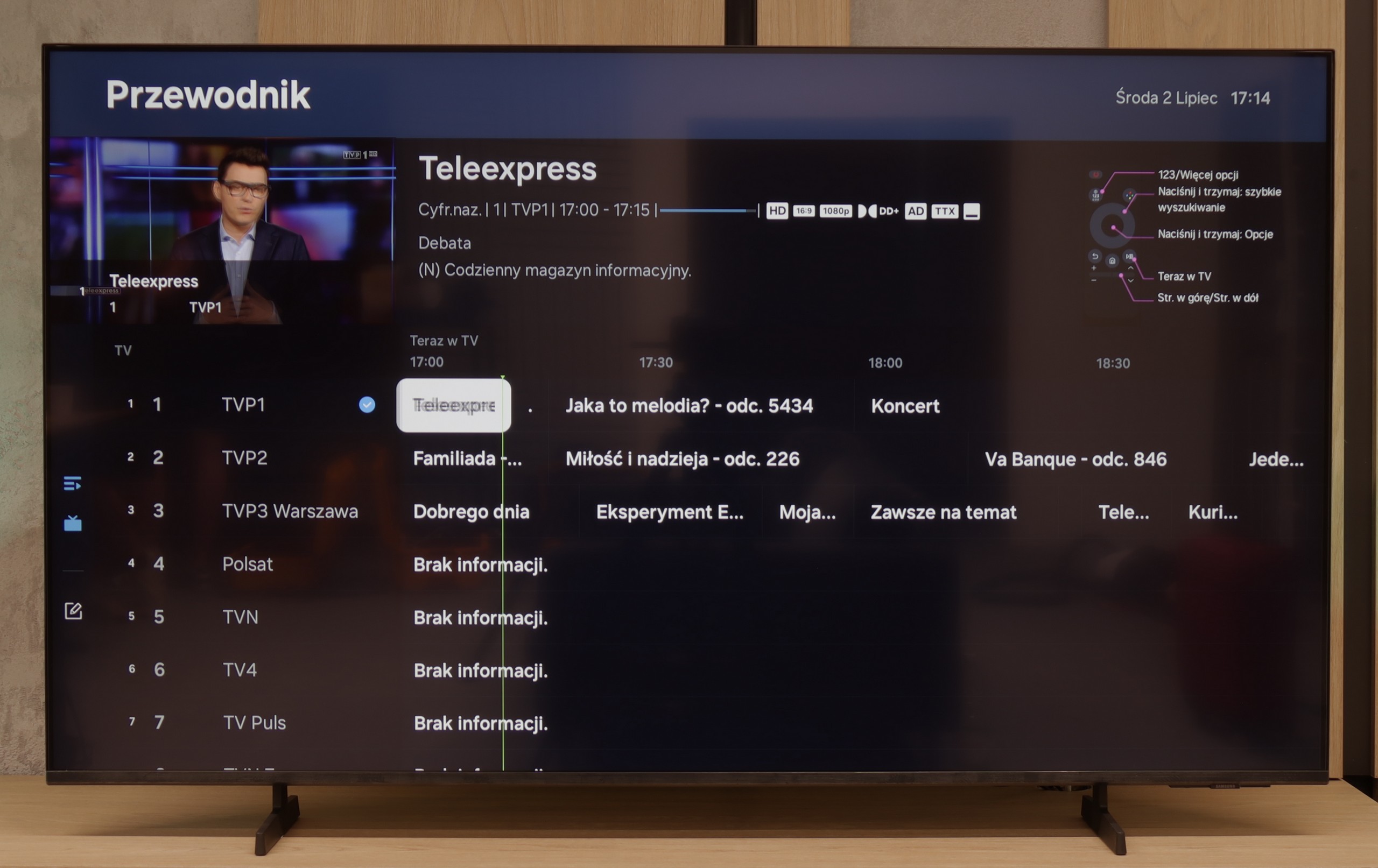
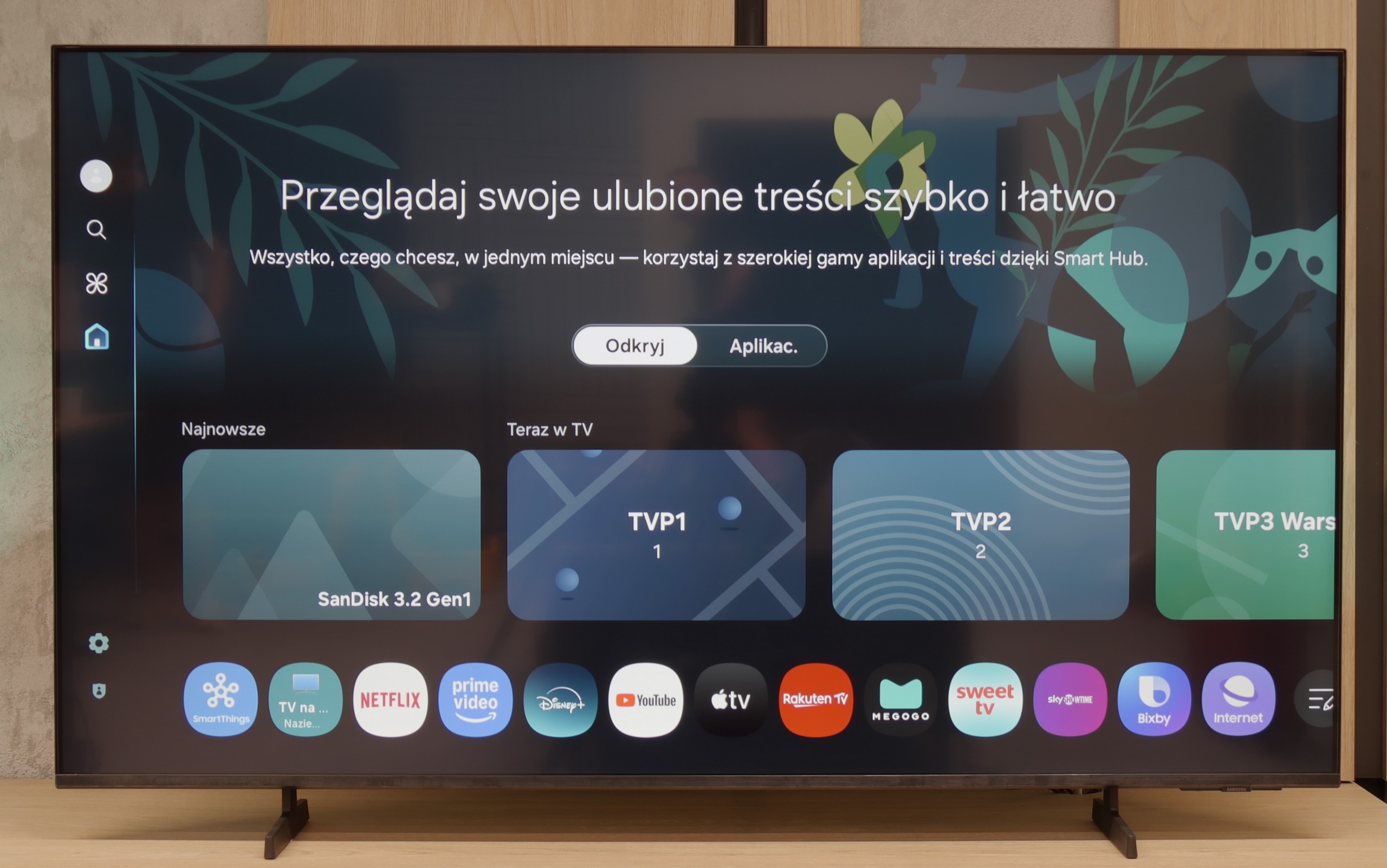
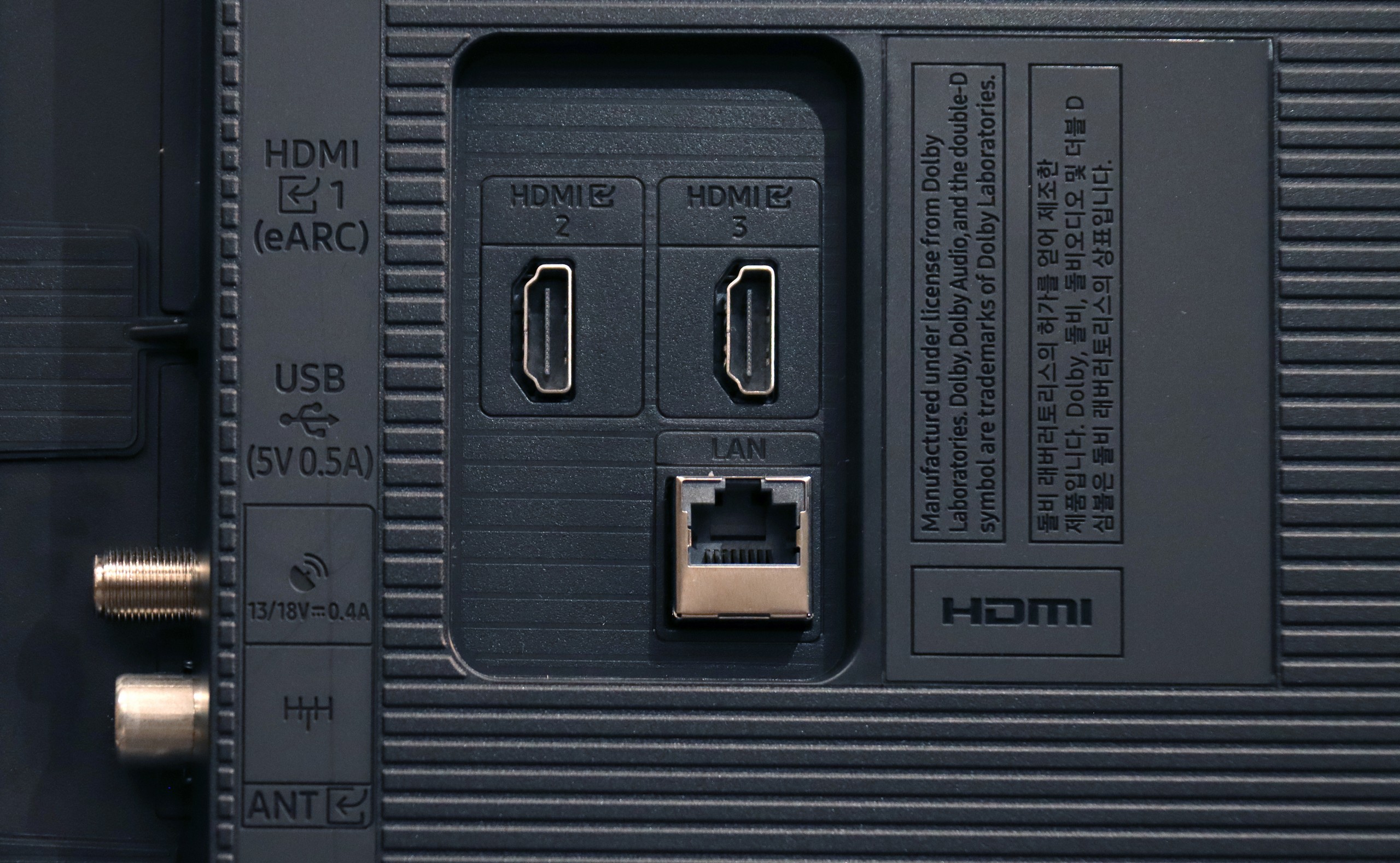
The TCL C655 PRO television operates on Google TV, which is an extension of the popular Android TV. Google TV offers personalised content recommendations based on viewed materials and user preferences, providing easy access to films, series, and applications. With its clear interface, navigation is straightforward, and access to the most popular streaming applications, such as Netflix, YouTube, Prime Video, and Disney+, allows for enjoyment of a wide range of content. The system also supports integration with the Google ecosystem, enabling control of the television using voice commands with Google Assistant and synchronisation with other smart home devices.
TCL C655 PRO offers additional features that enhance user comfort, such as support for Apple AirPlay, allowing for quick content streaming from Apple devices directly to the television screen. Furthermore, the ability to connect peripherals via Bluetooth – e.g. keyboards, mice, or headphones – makes usage even more convenient. Unfortunately, this model does not have the function to record content on USB or the picture-in-picture (PiP) option, which may be a disappointment for those accustomed to these conveniences in traditional television. Nevertheless, the TCL C655 PRO offers many modern solutions that facilitate everyday entertainment.
The design of the TCL C655 PRO television looks modern, with elegant and slim metal frames that add solidity and aesthetic appeal to the device. Overall, it looks very good and will certainly fit into most interiors. Although the frames are minimalist, the television itself is not among the thinnest on the market, especially in comparison to Korean competitors who often offer even slimmer designs.
Samsung U8092F – like all this year's models from this brand – runs on the Tizen operating system. The system itself is really well developed: we have access to many applications (though not all), a well-developed smart home support, and various add-ons, including exclusive Samsung applications. There are also features such as AirPlay and Chromecast, which allow us to easily connect our phone to the television and stream multimedia.
Unfortunately, as this is the cheapest series from Samsung in 2025, the manufacturer has not decided to include a solar remote. In the package, we find a classic infrared remote, which visually resembles the newer version, but unfortunately lacks voice functions. As for the typical "television" add-ons – the recording function and PiP (picture-in-picture) mode are missing. However, HDMI eARC works in its favour, allowing easy control of devices such as a decoder or soundbar with the remote included – and it truly works seamlessly.
Playing files from USB
8.3/10
8.7/10
Supported photo formats:
Maximum photo resolution:

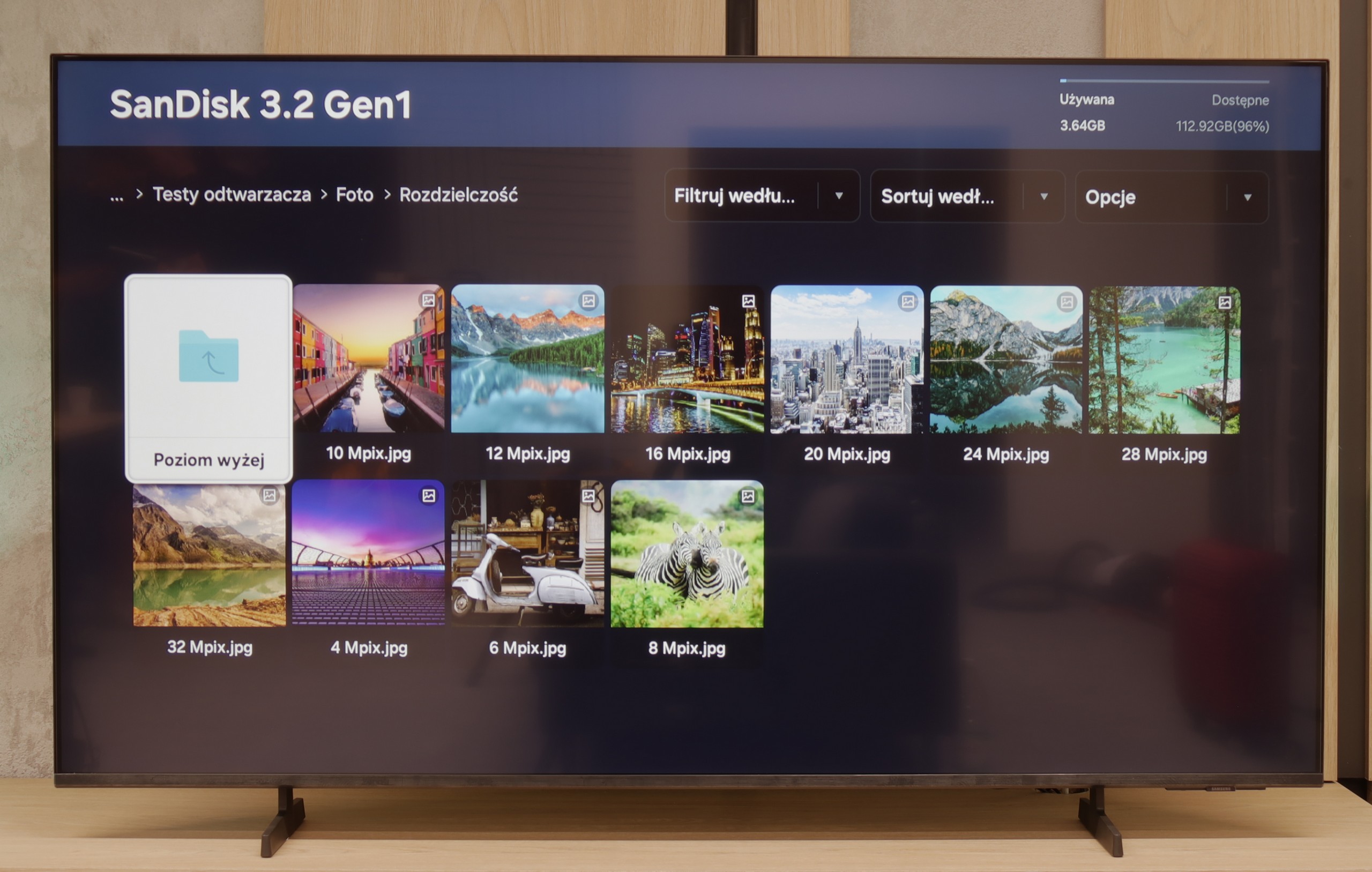
Thanks to the built-in player, the television is capable of playing most file formats found on external storage, making it a versatile tool for consuming multimedia. However, there may be certain limitations in handling some formats, which can be cumbersome for more demanding users. Fortunately, the Google TV system allows for the installation of other media players from Google Play, which helps to eliminate compatibility issues. This way, users have the opportunity to choose applications that best meet their needs, significantly enhancing the functionality of the television.
Samsung U8092F handles file playback quite seamlessly – the television supports most popular audio and video formats. Of course, it does not support Dolby Vision, but that is simply not found in any Samsung model.
Some reservations can be made regarding the support for external text files – those that the user would like to add as subtitles to a film. During our tests, the television only played TXT files, while other extensions like SRT or SUB unfortunately did not work. This may not be a problem for everyone, but it's worth knowing. Perhaps it is an issue to be addressed in the future with an update to the television's operating system.
Apps
10/10
8.3/10














































Sound
6.6/10
5.7/10
- Subjective sound quality:6.6/105.7/10
- Dolby Digital Plus 7.1:
- Dolby True HD 7.1:
- Dolby Atmos in Dolby Digital Plus (JOC):
- Dolby Atmos in Dolby True HD:
- DTS:X in DTS-HD MA:
- DTS-HD Master Audio:
The sound on the TCL C655 PRO television is quite good, thanks to the 2x15W audio system supported by a 20W subwoofer branded by Onkyo. This results in a fuller sound and deeper bass, positively affecting the overall audio quality. However, one should not get overly enthusiastic – the television cannot replace a dedicated soundbar, especially for more demanding users looking for cinema-quality audio.
U8092F does not pretend to have a home cinema on board. We receive a standard set of 2 x 10 W, which sounds adequate, but without much excitement, although it does have a slight bass. For everyday viewing, such an audio setup is entirely sufficient. We were pleasantly surprised that it managed to play a film with the built-in Dolby Atmos (JOC) codec – though of course, we are not talking about real surround sound.


